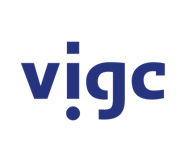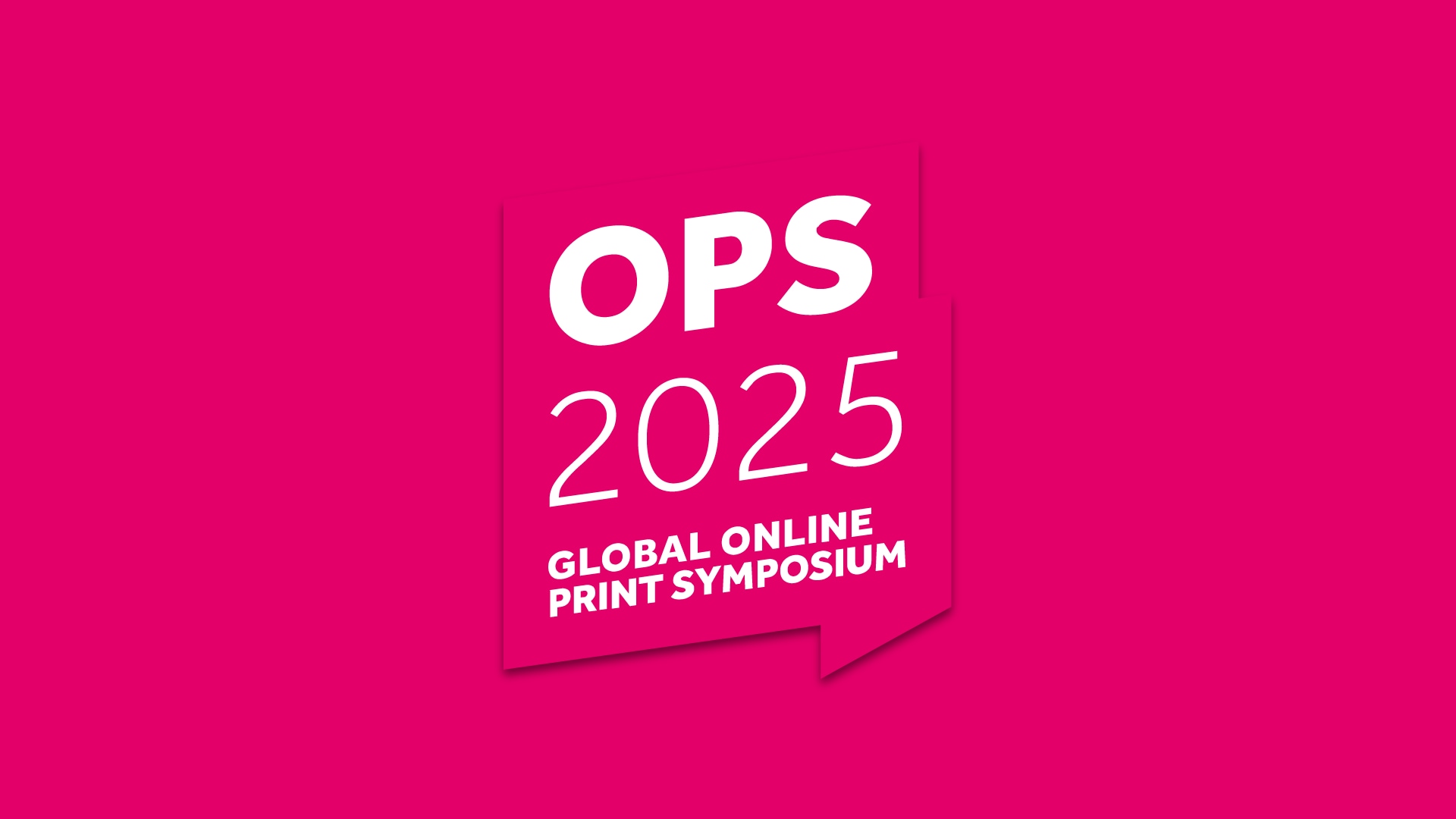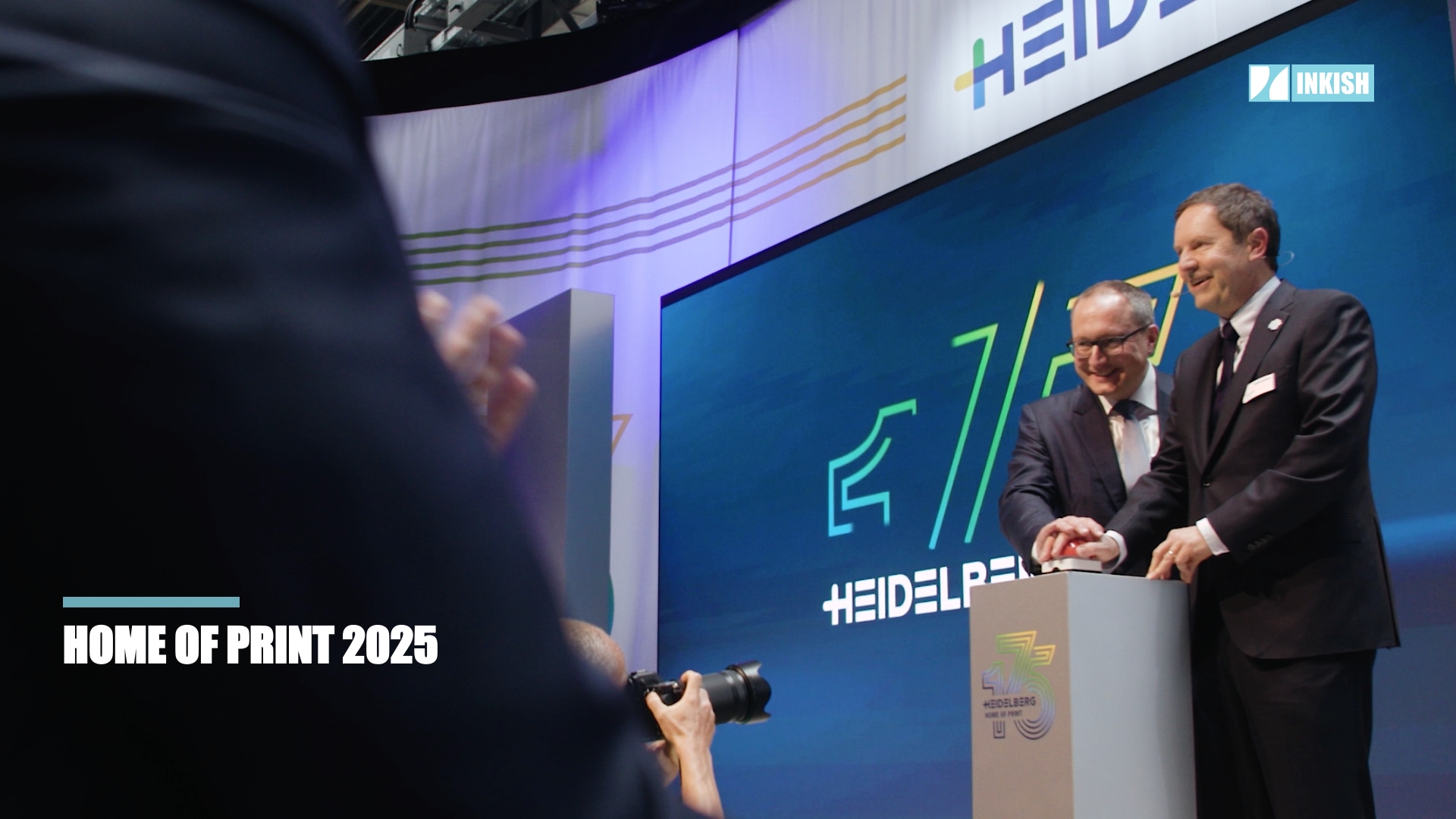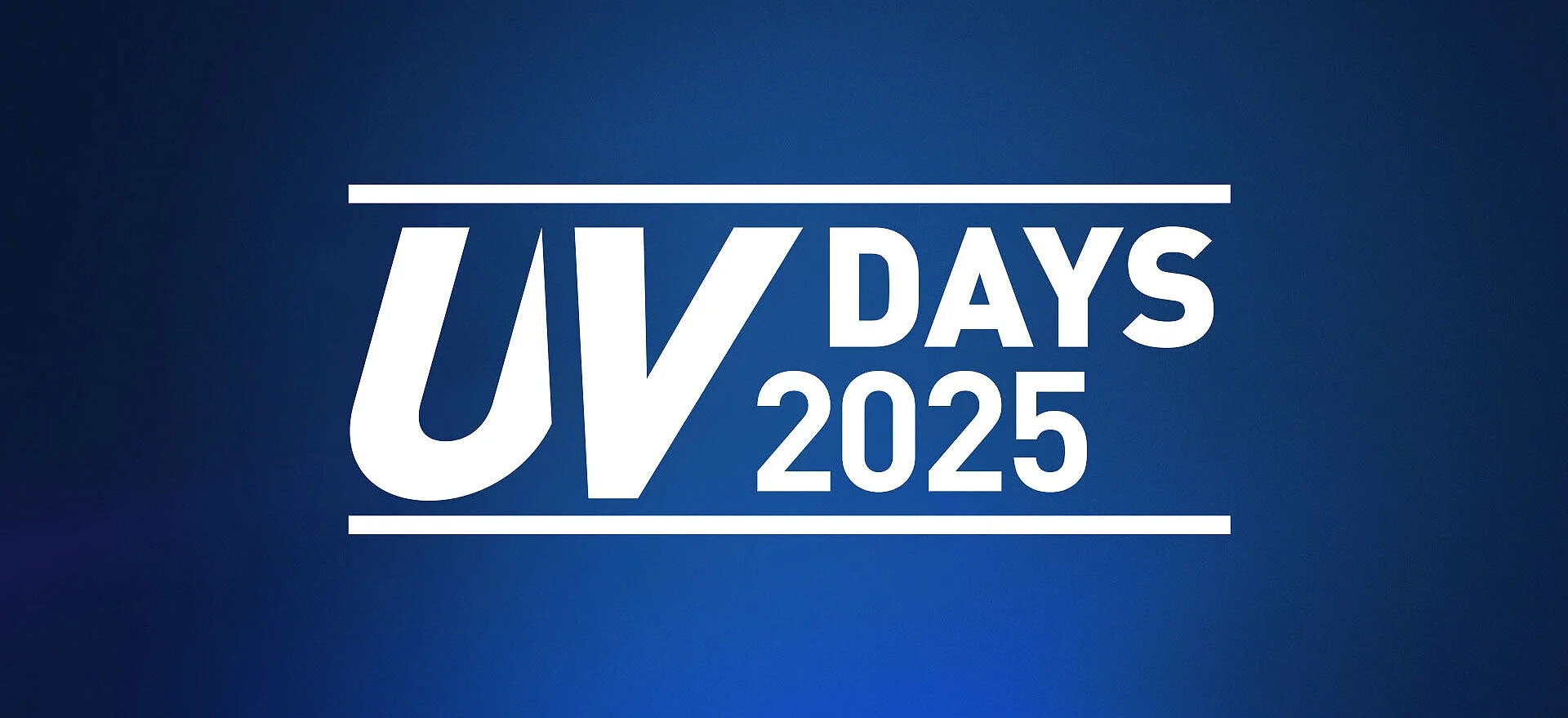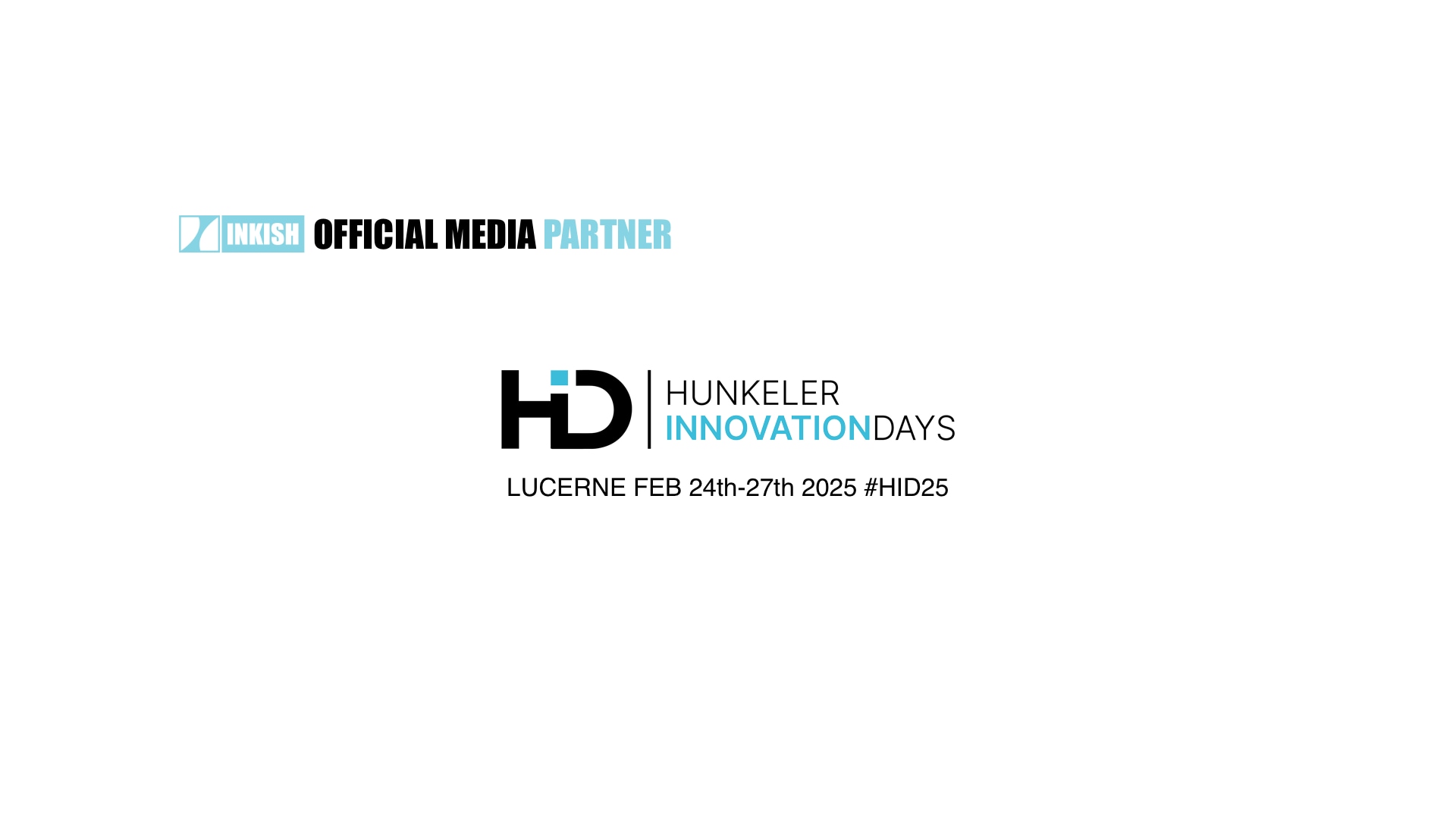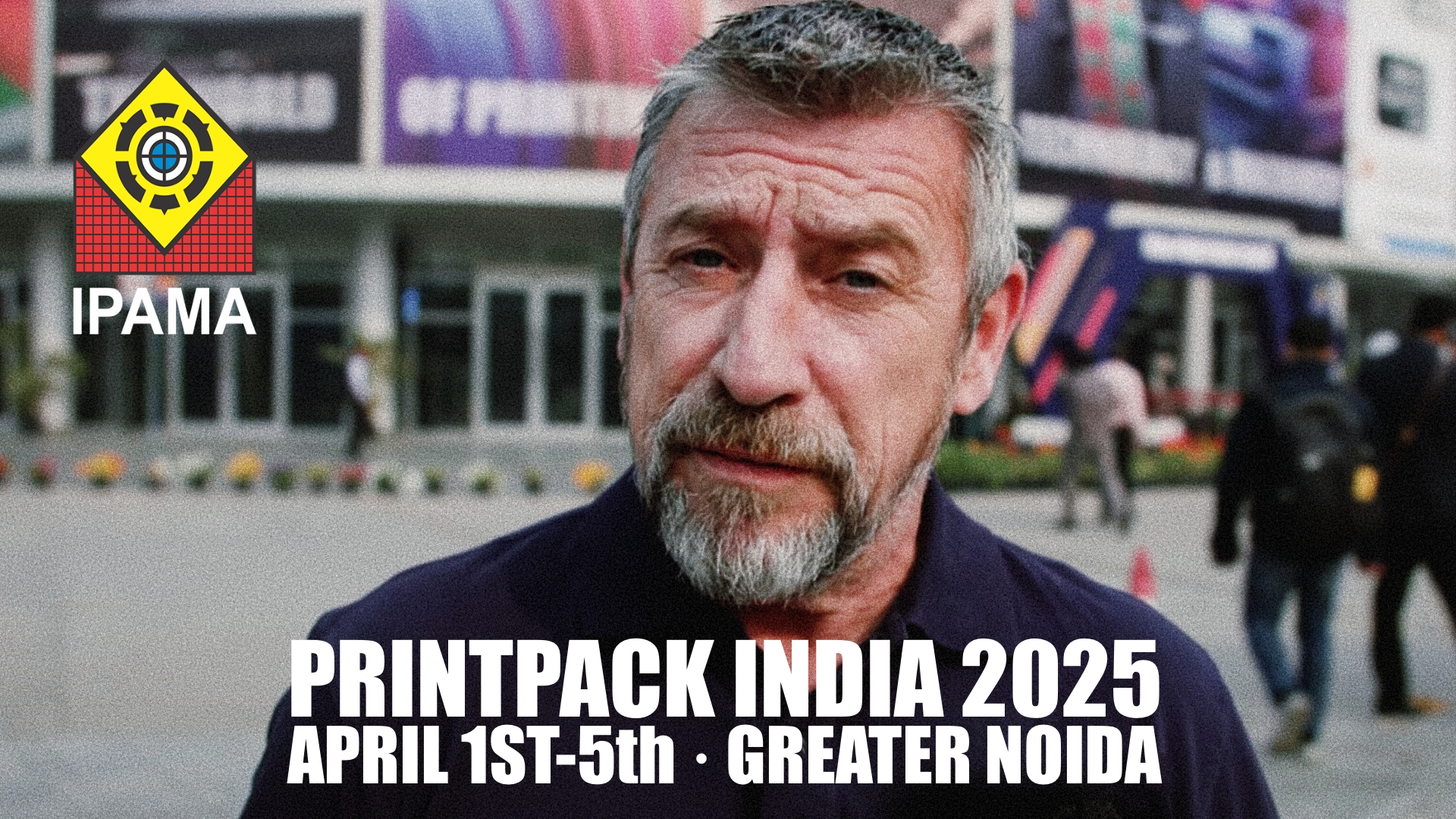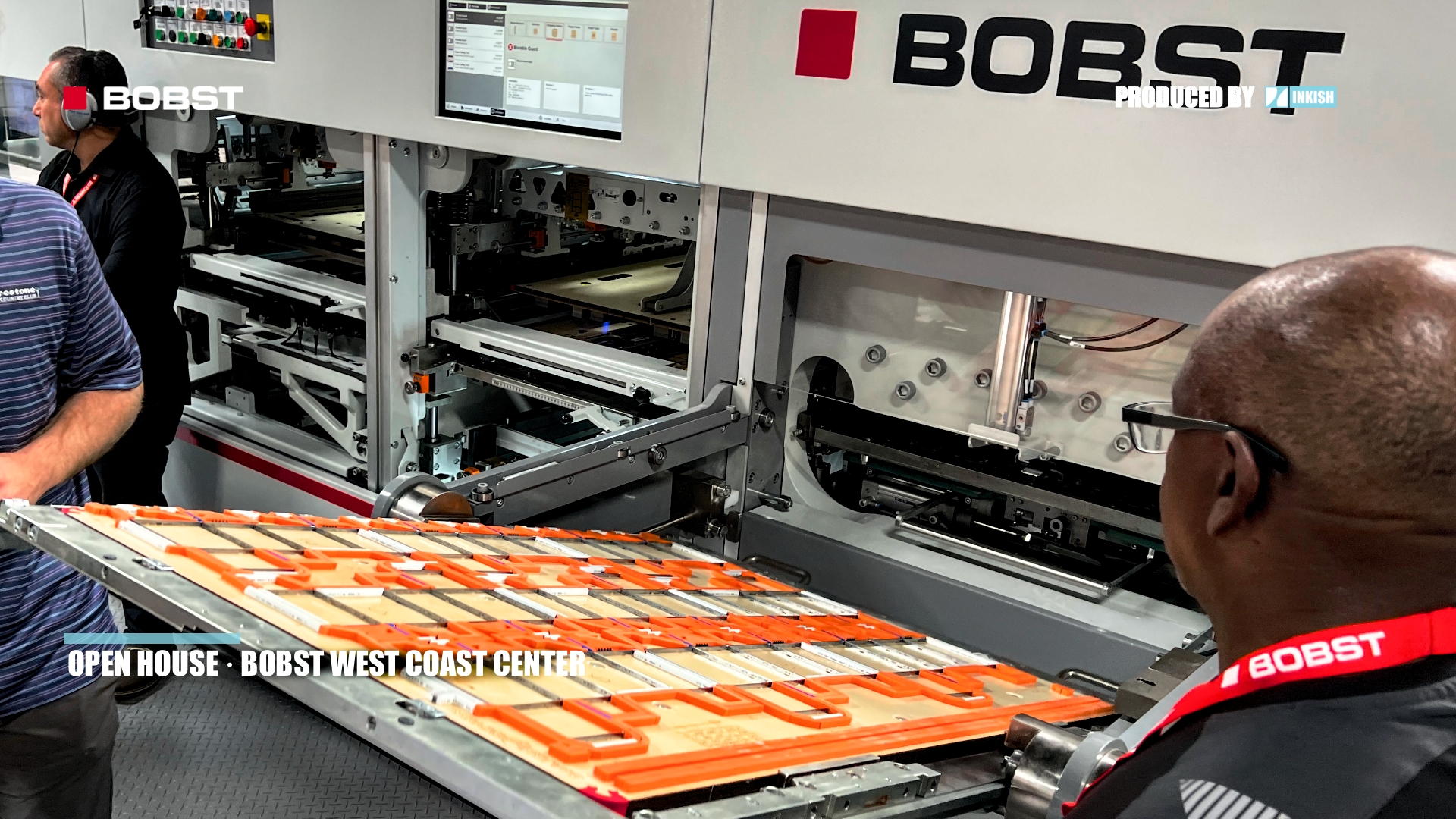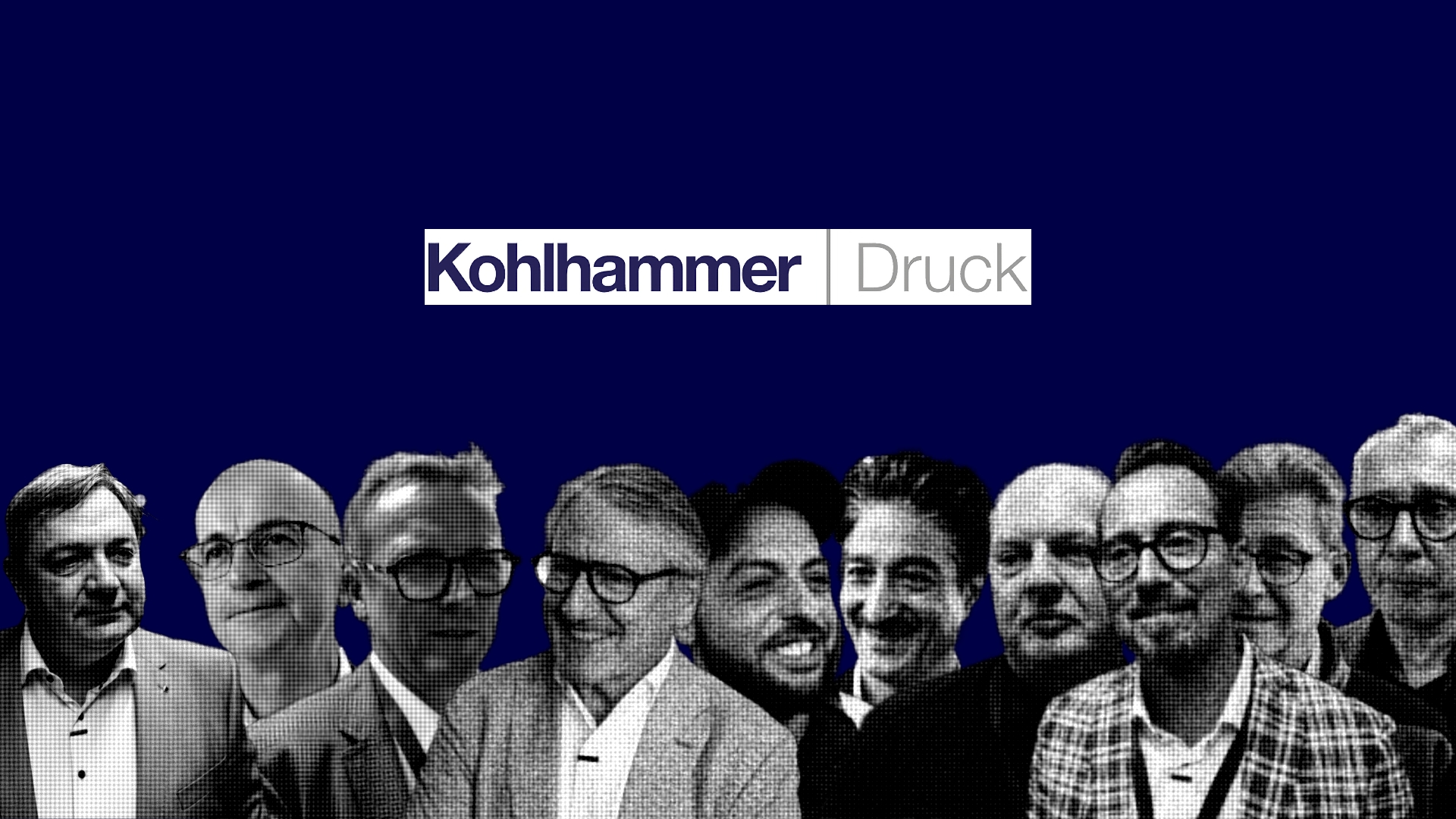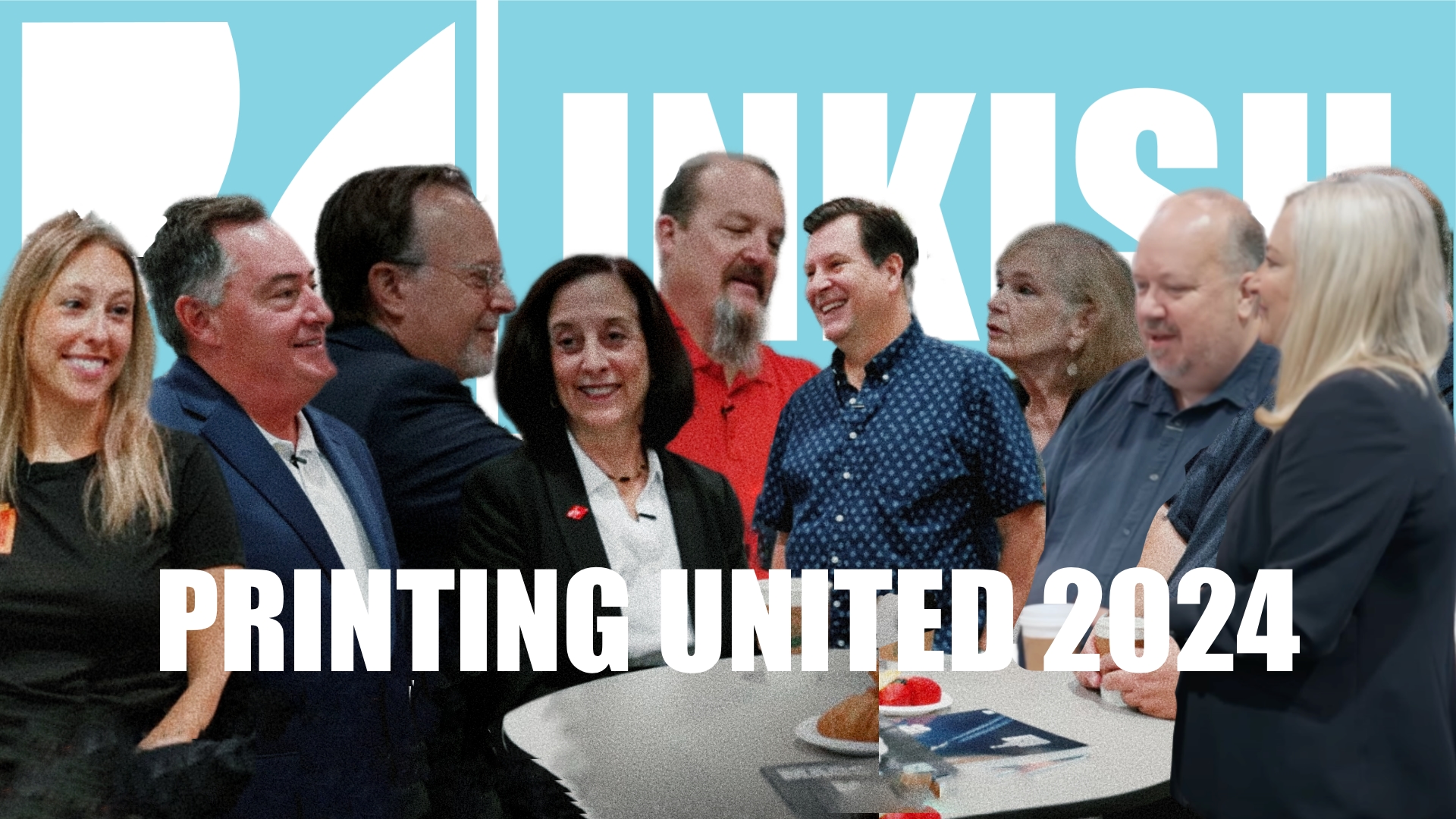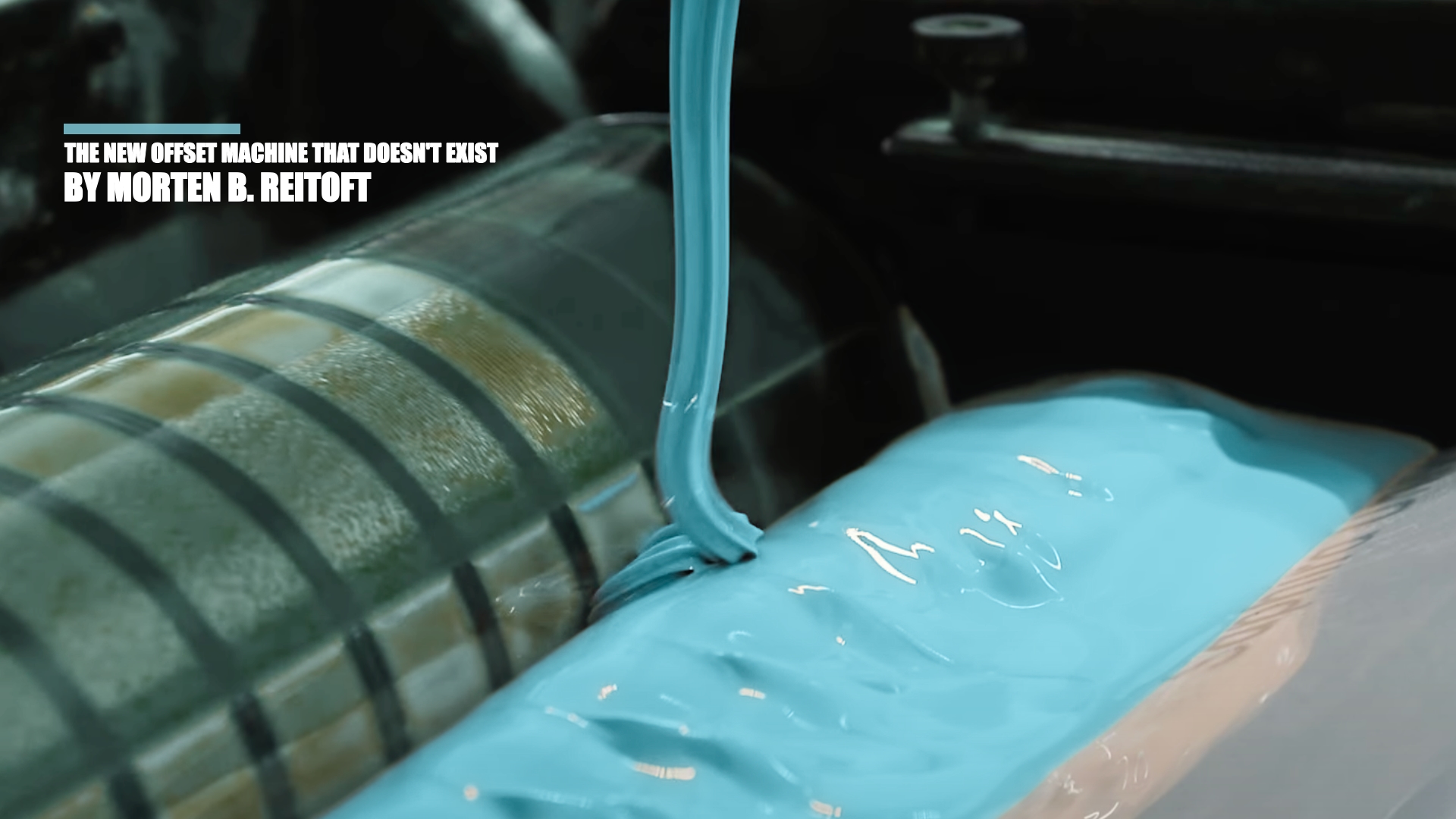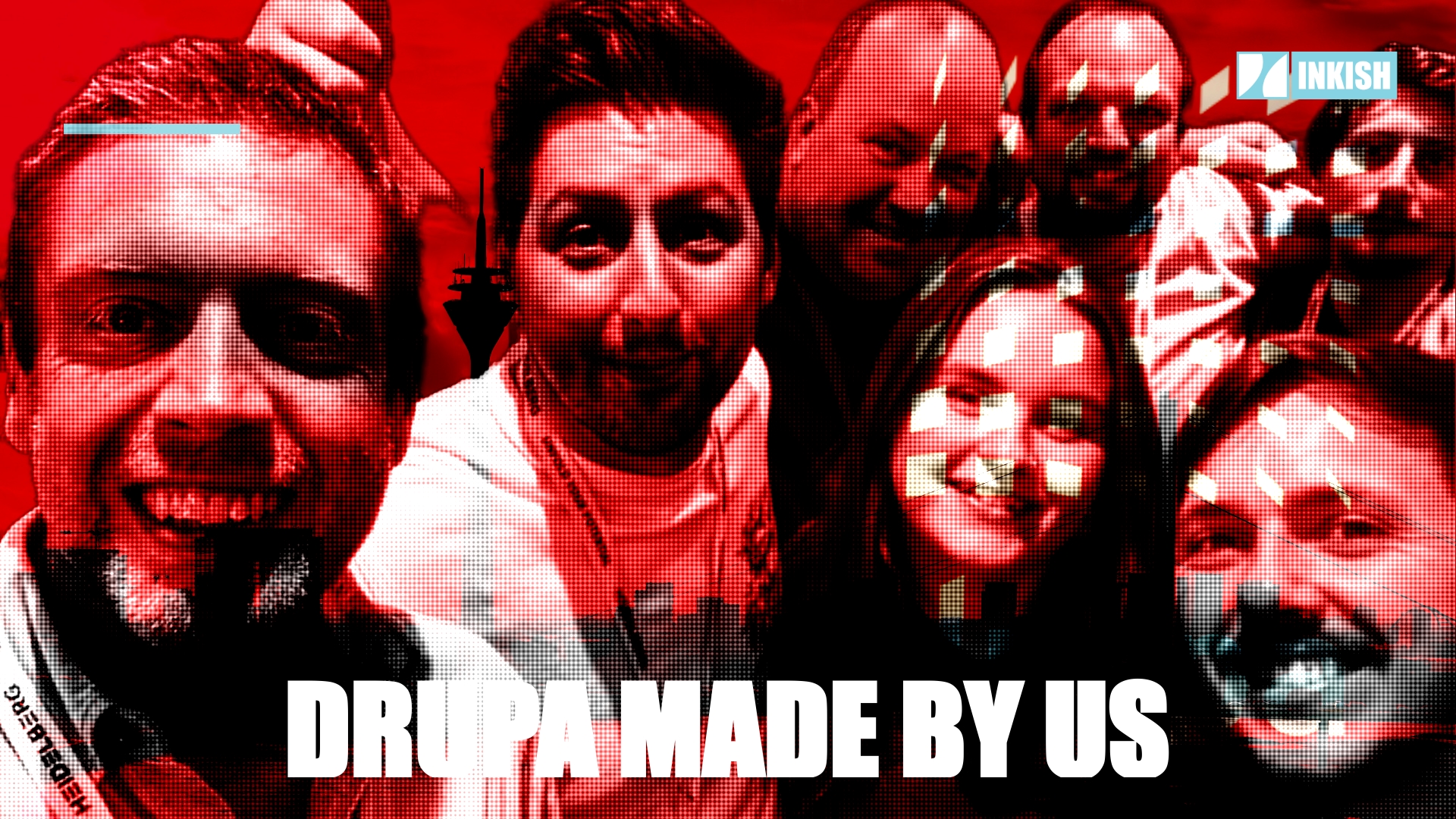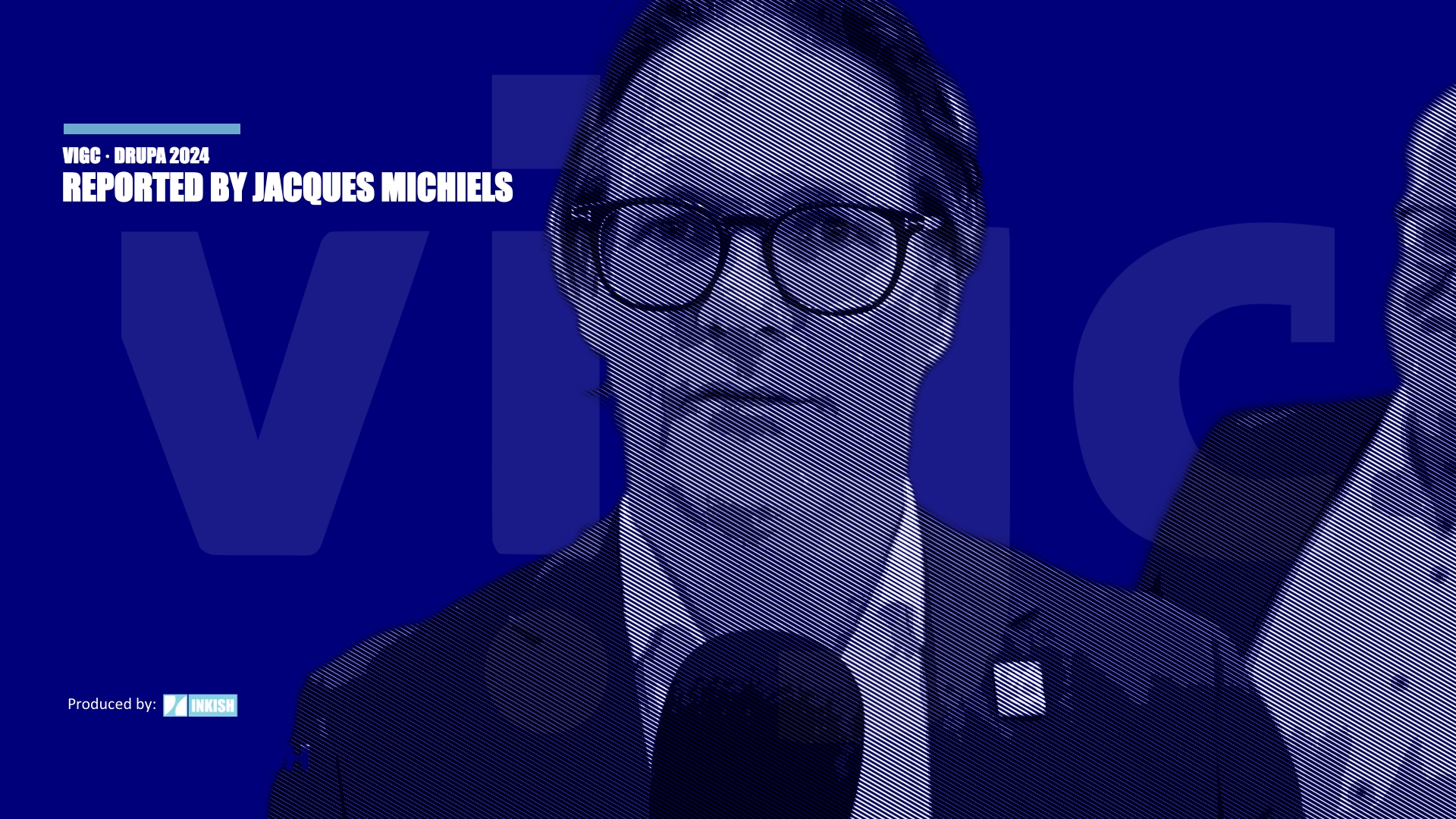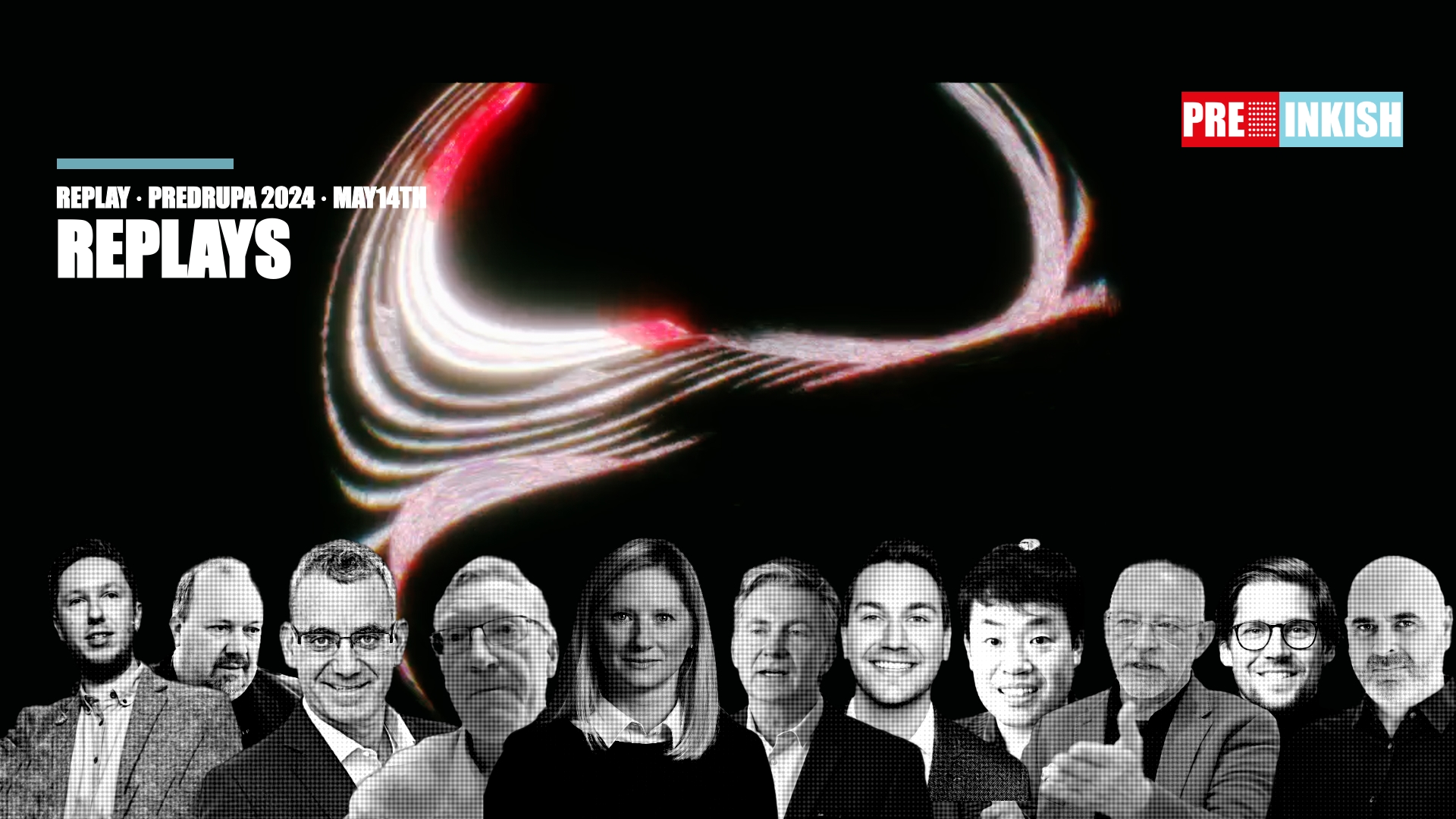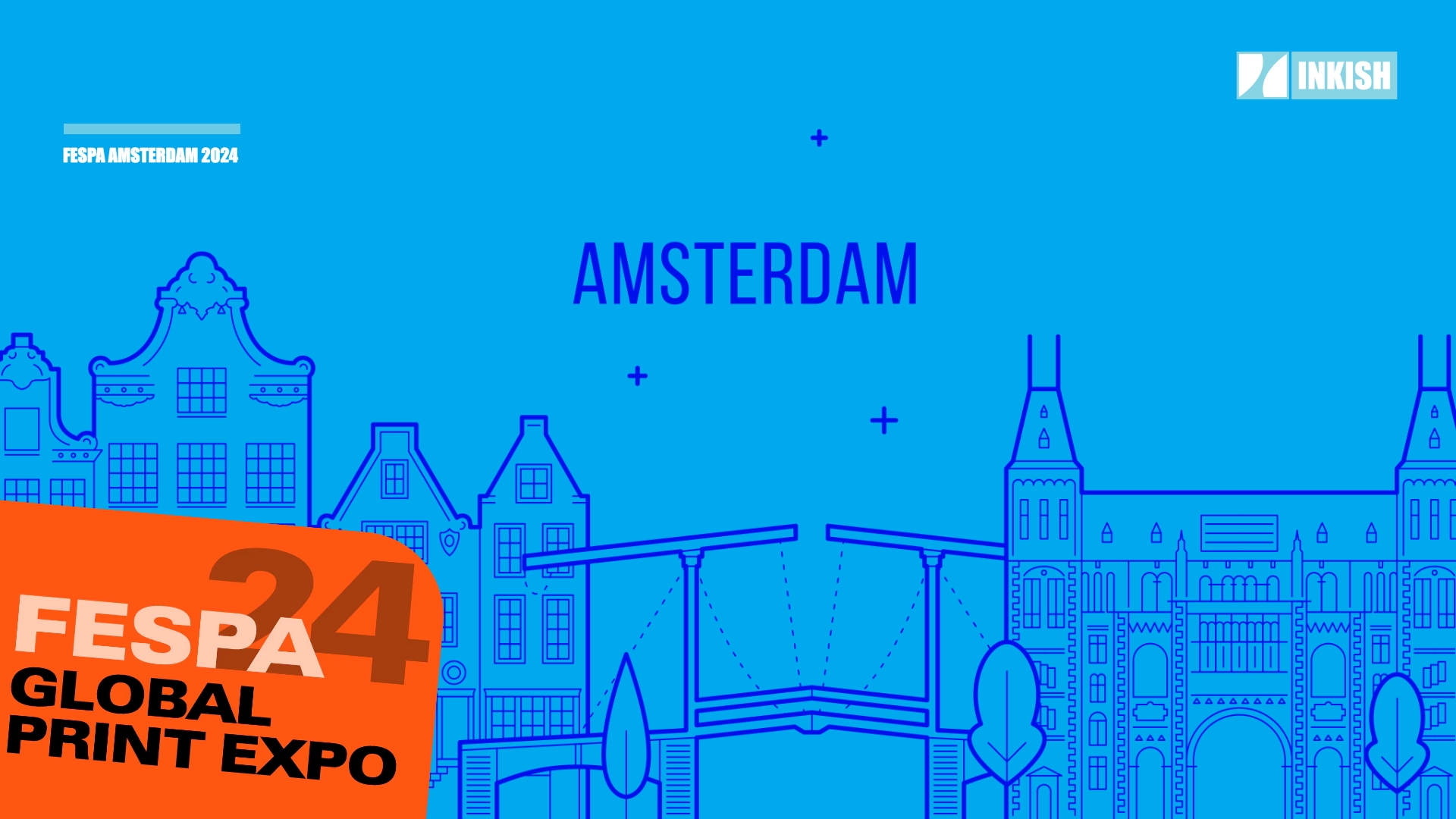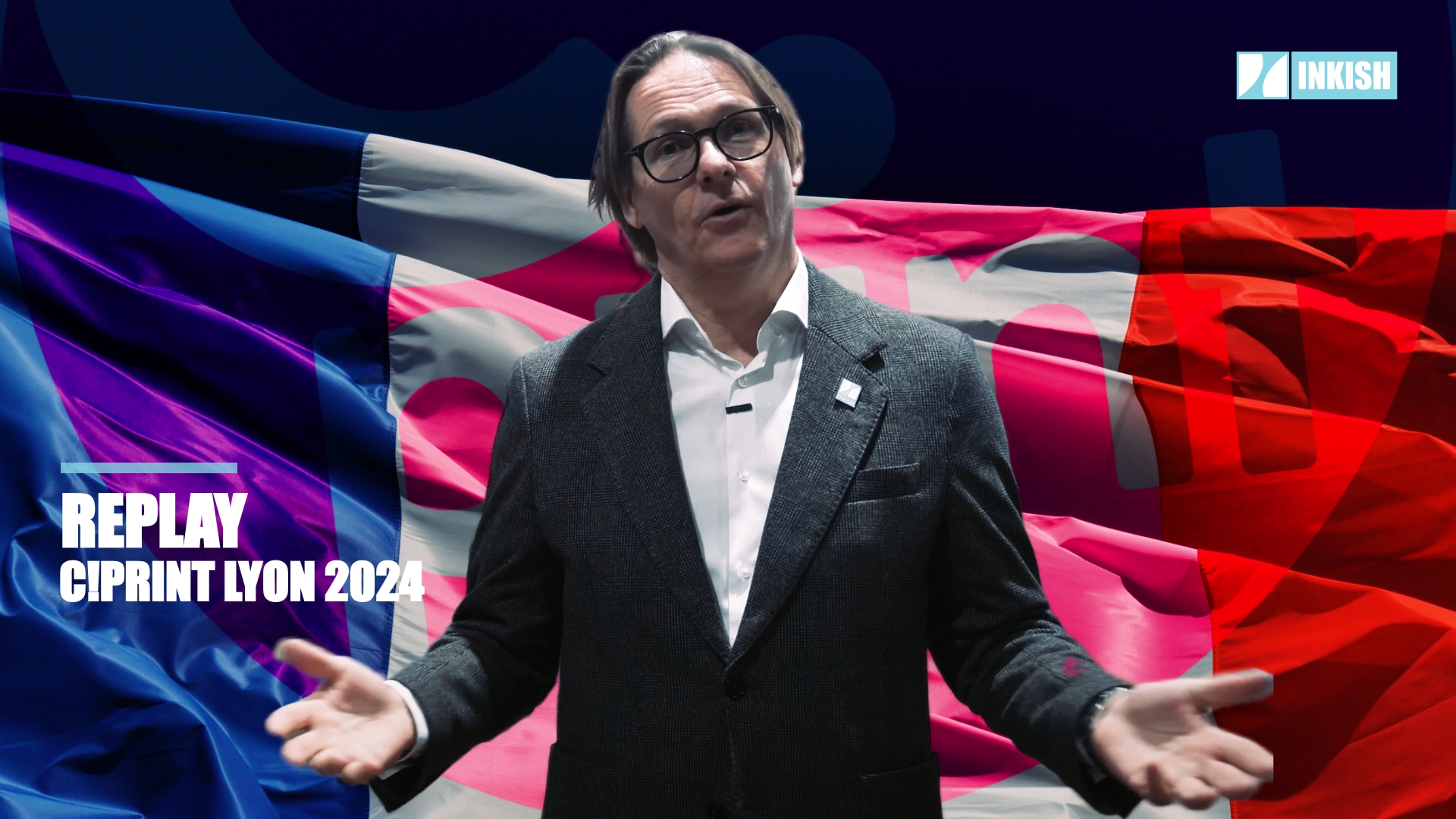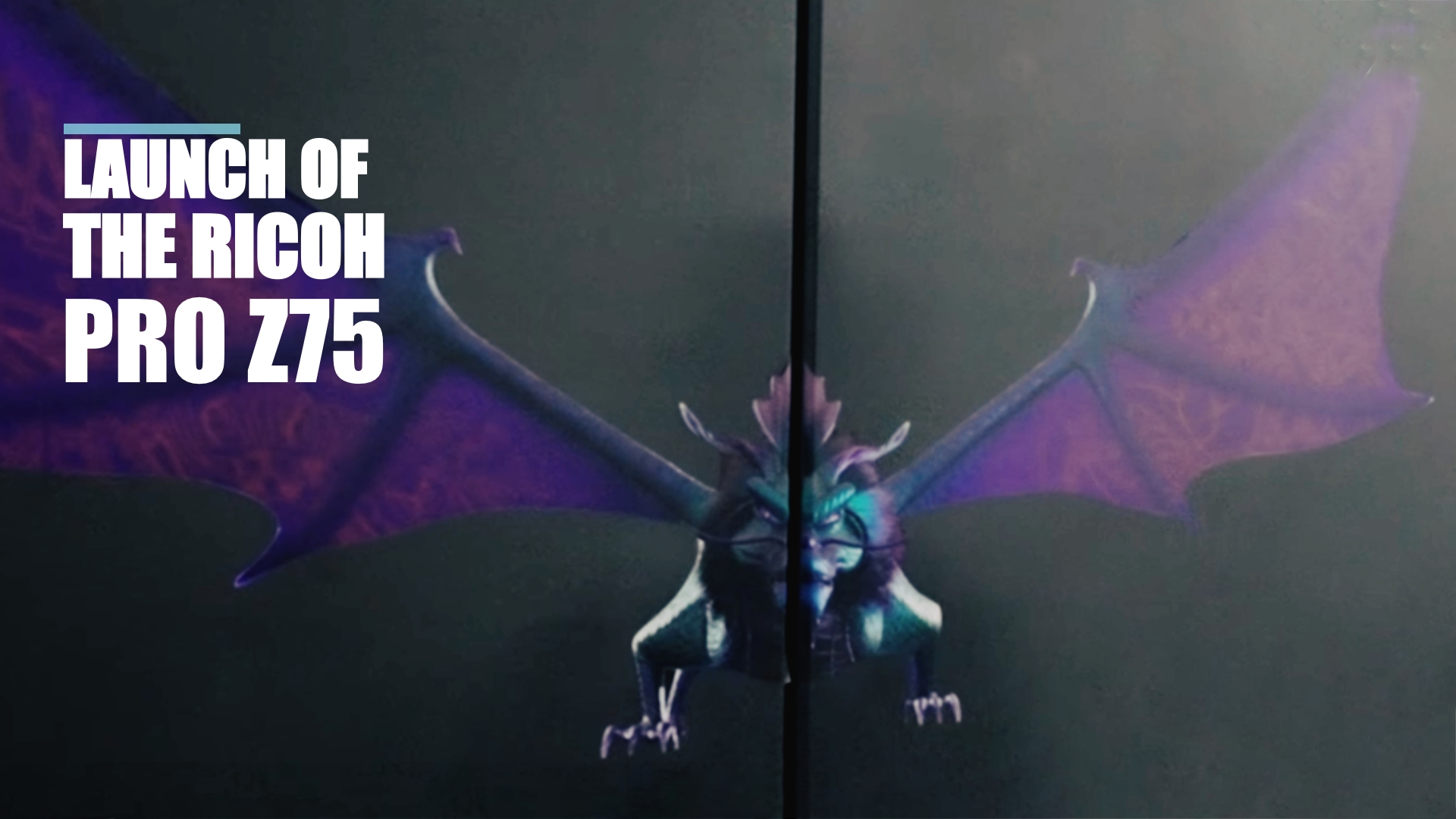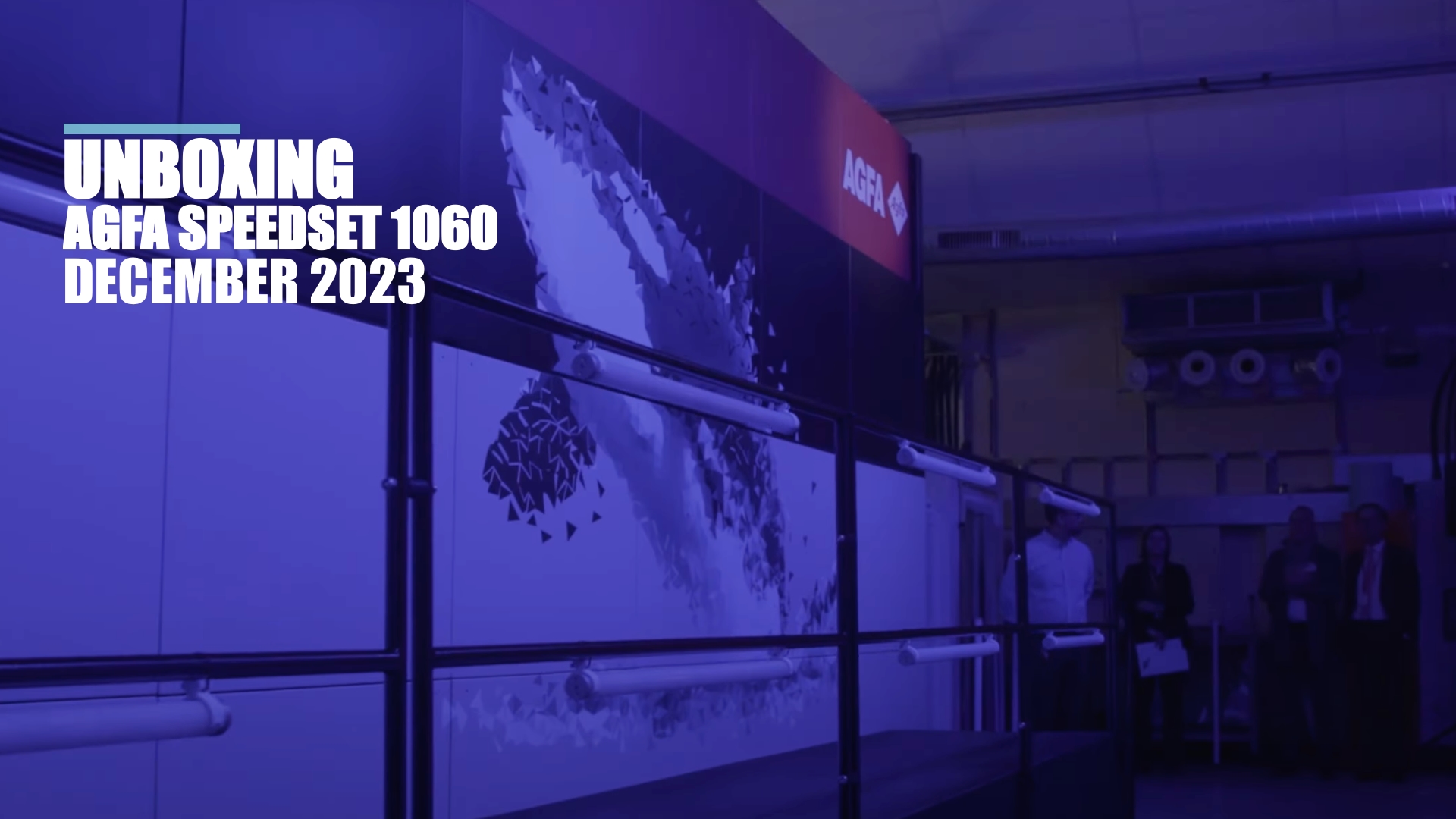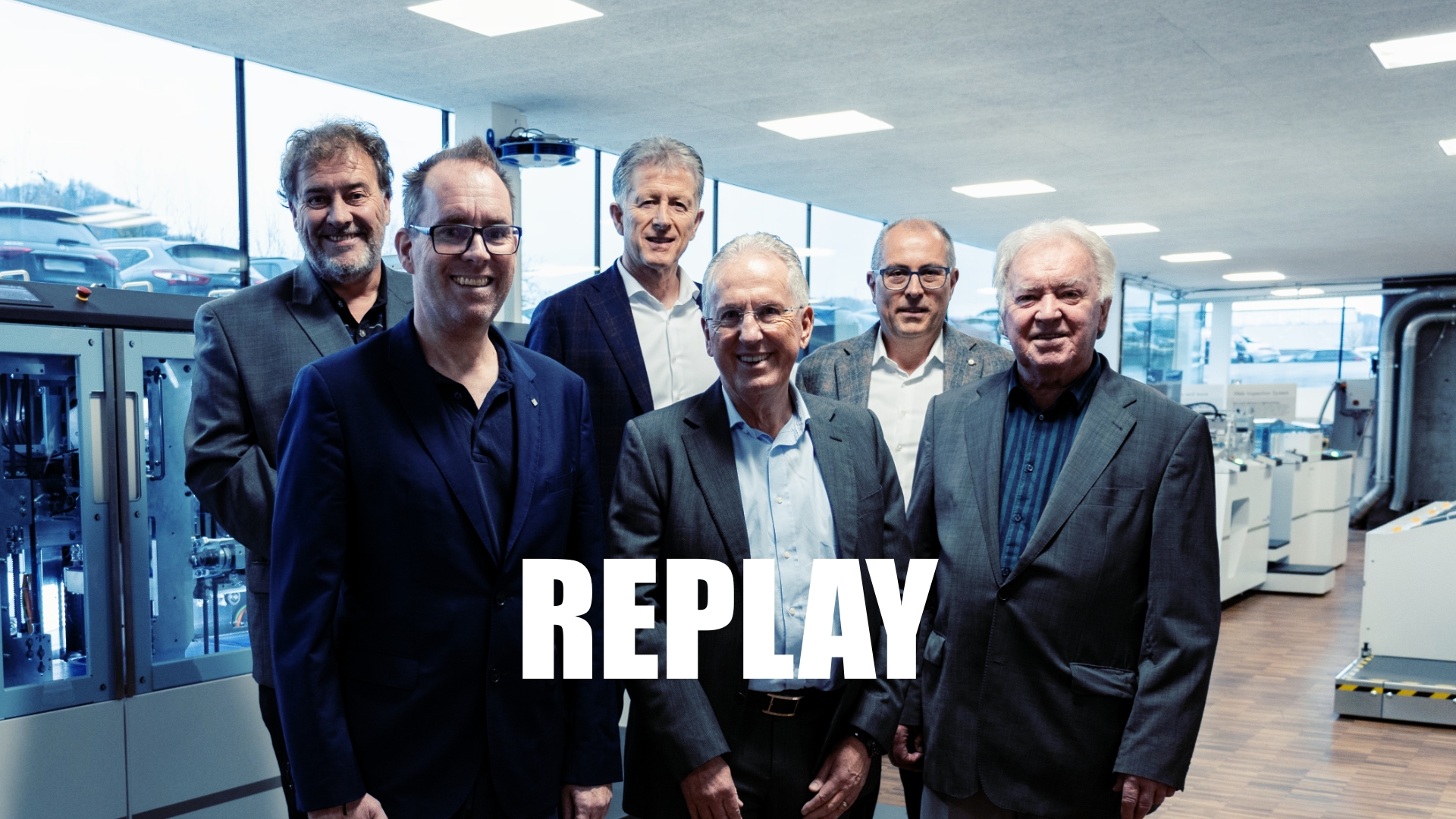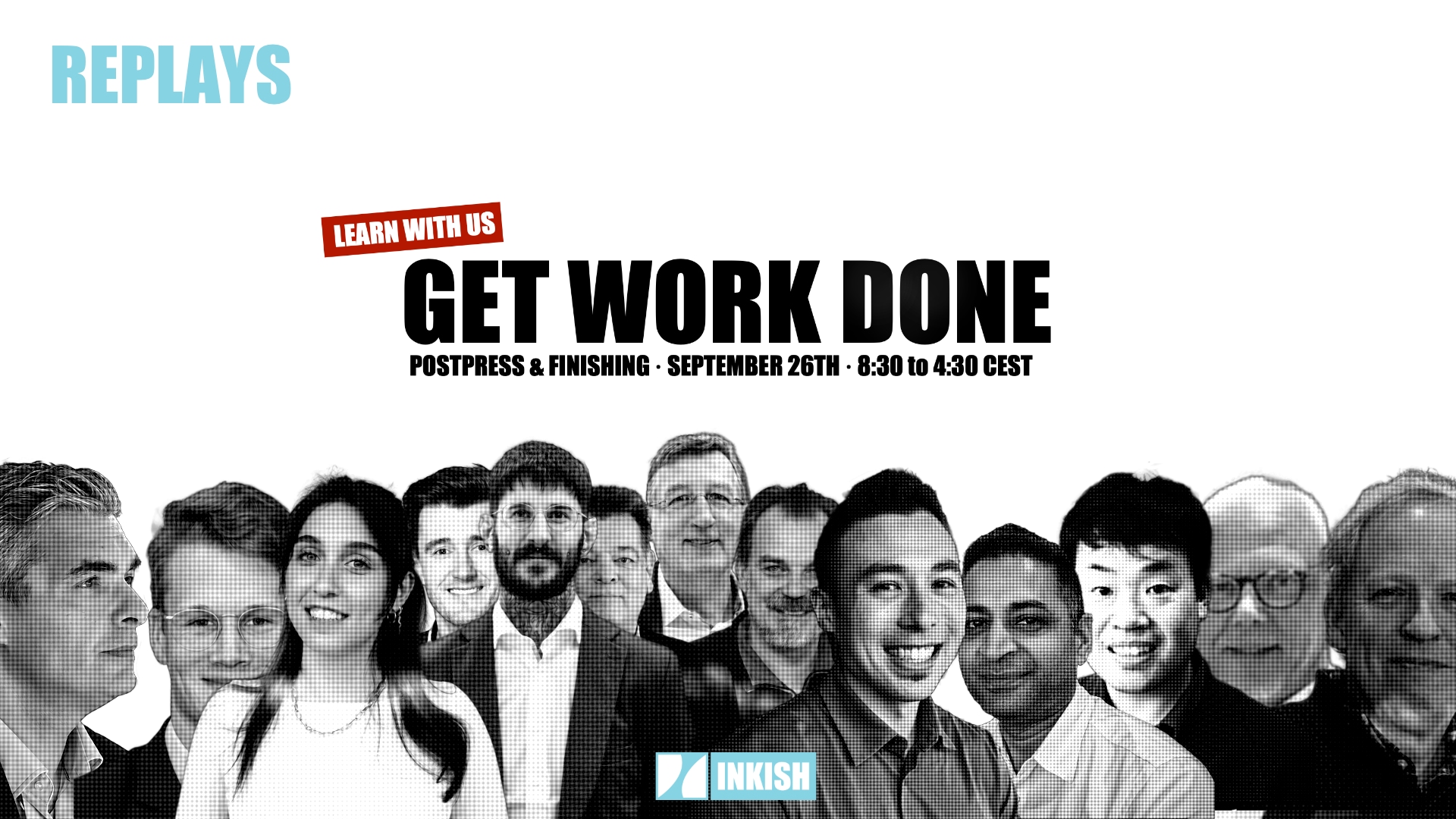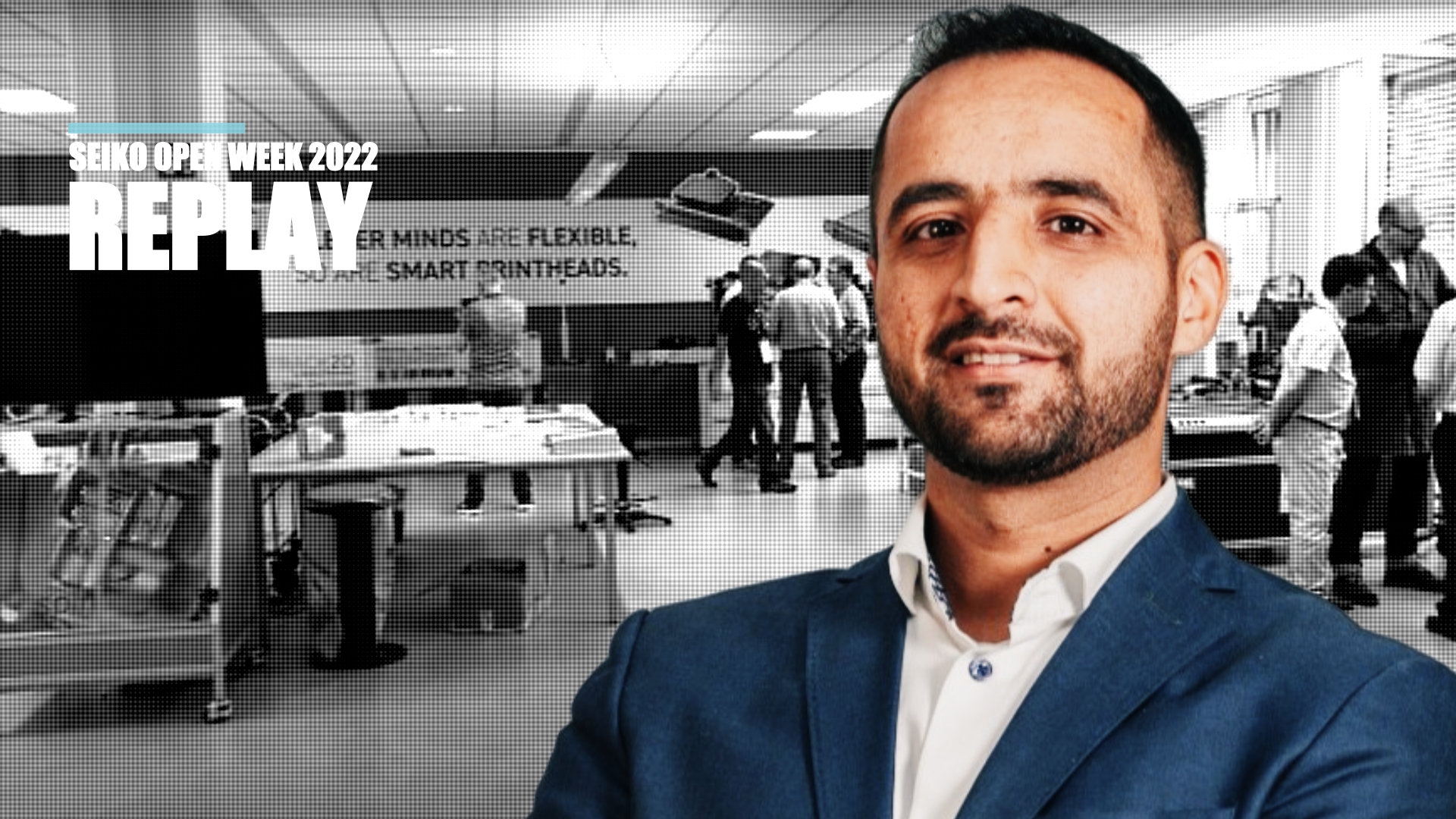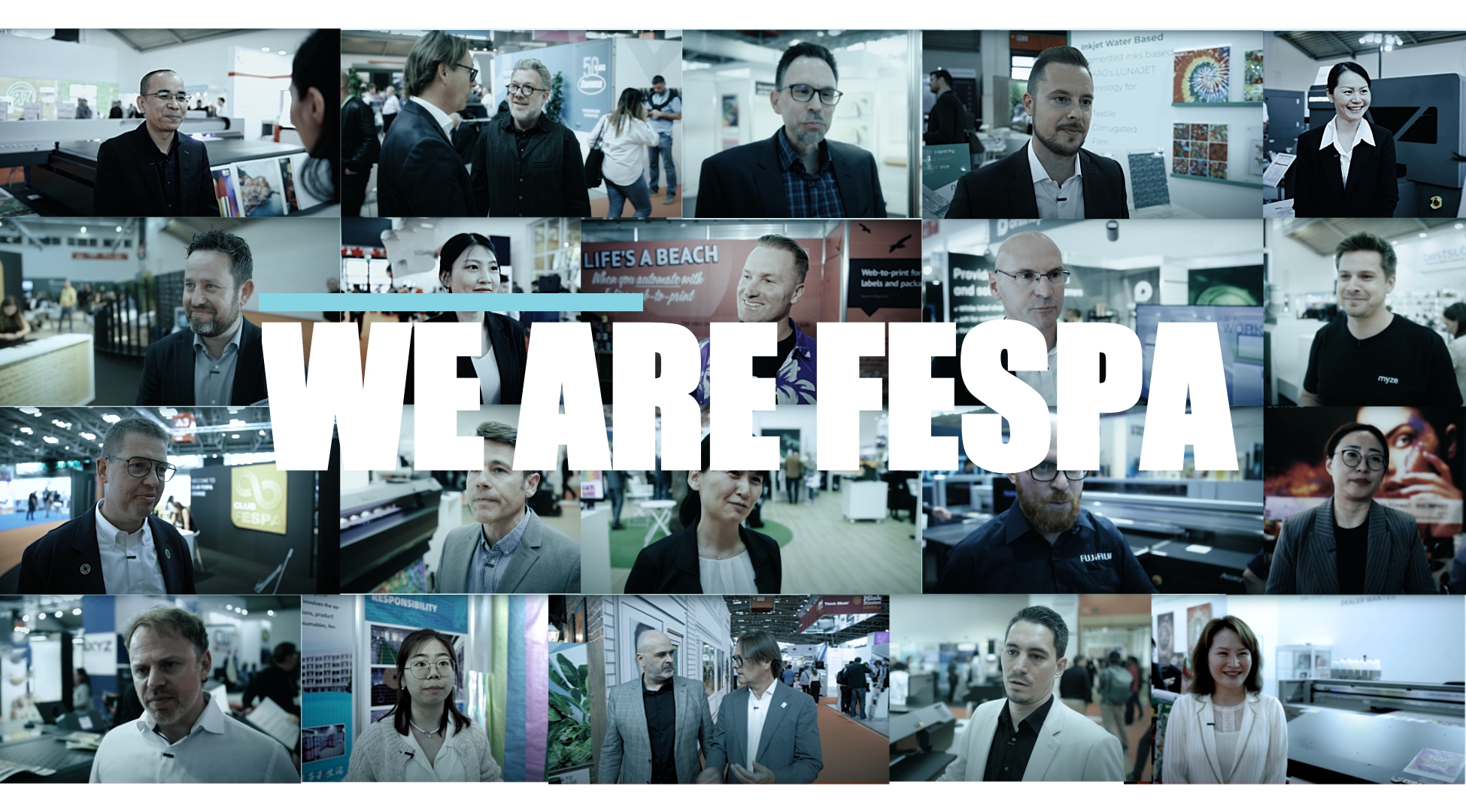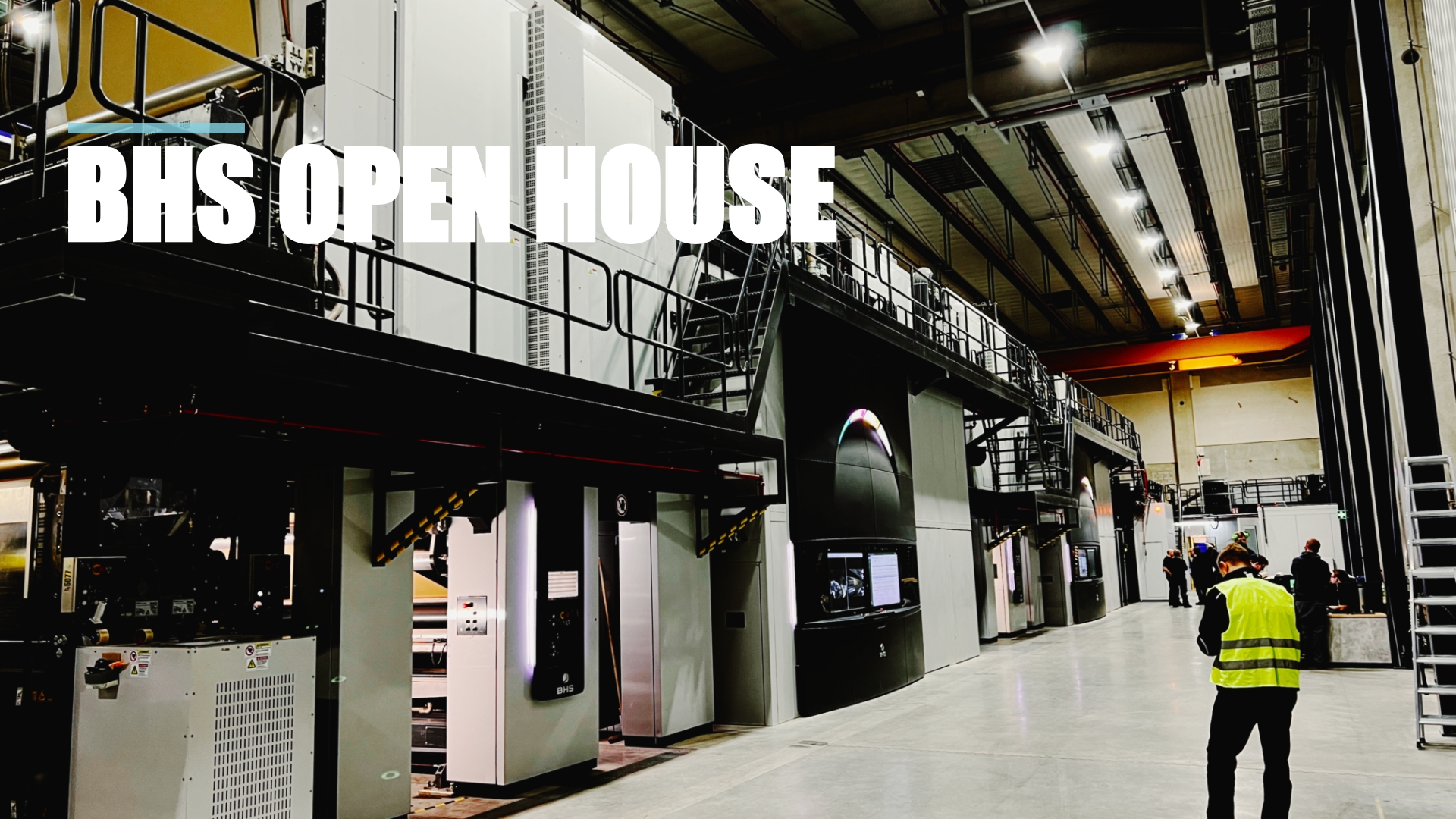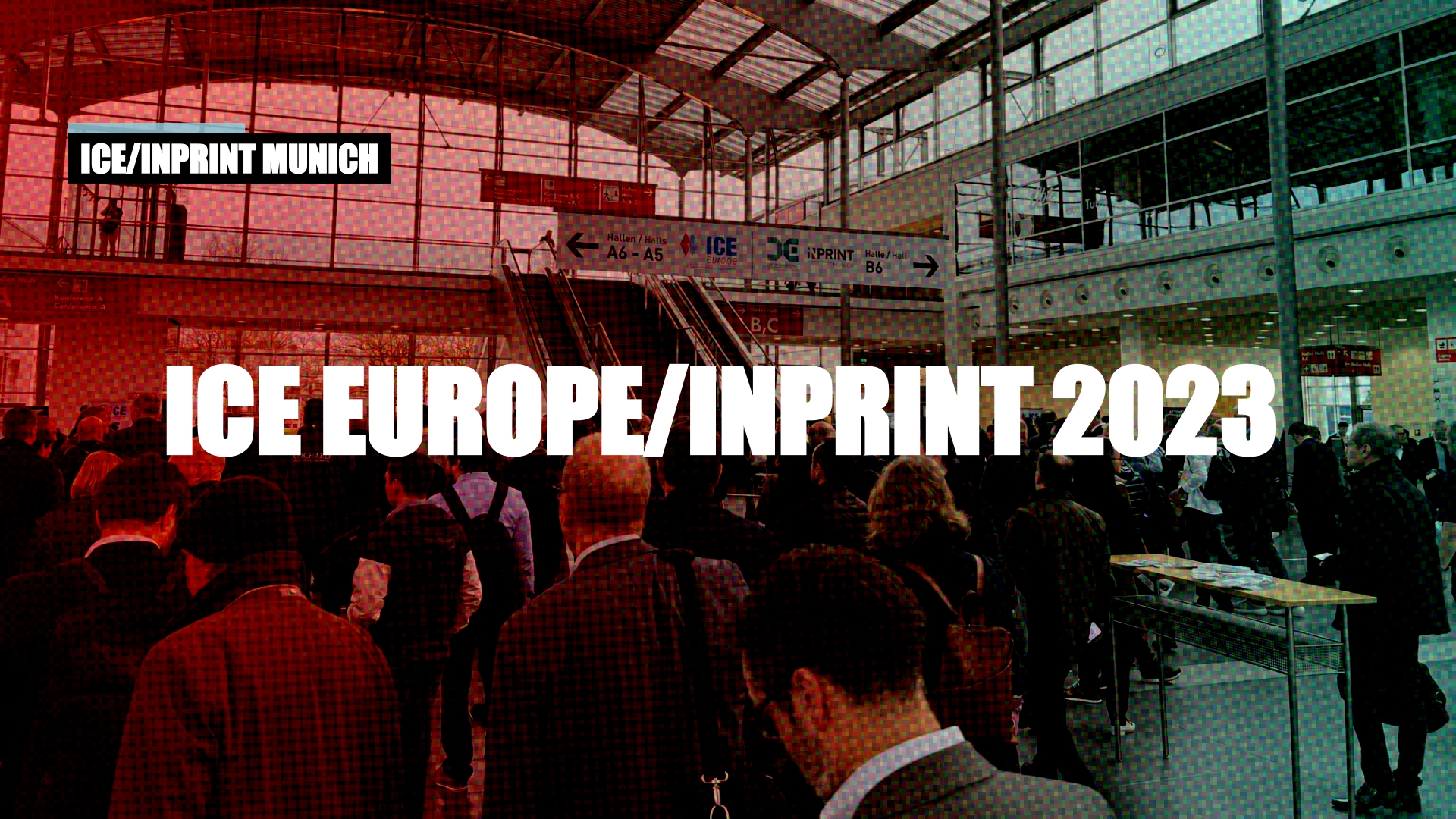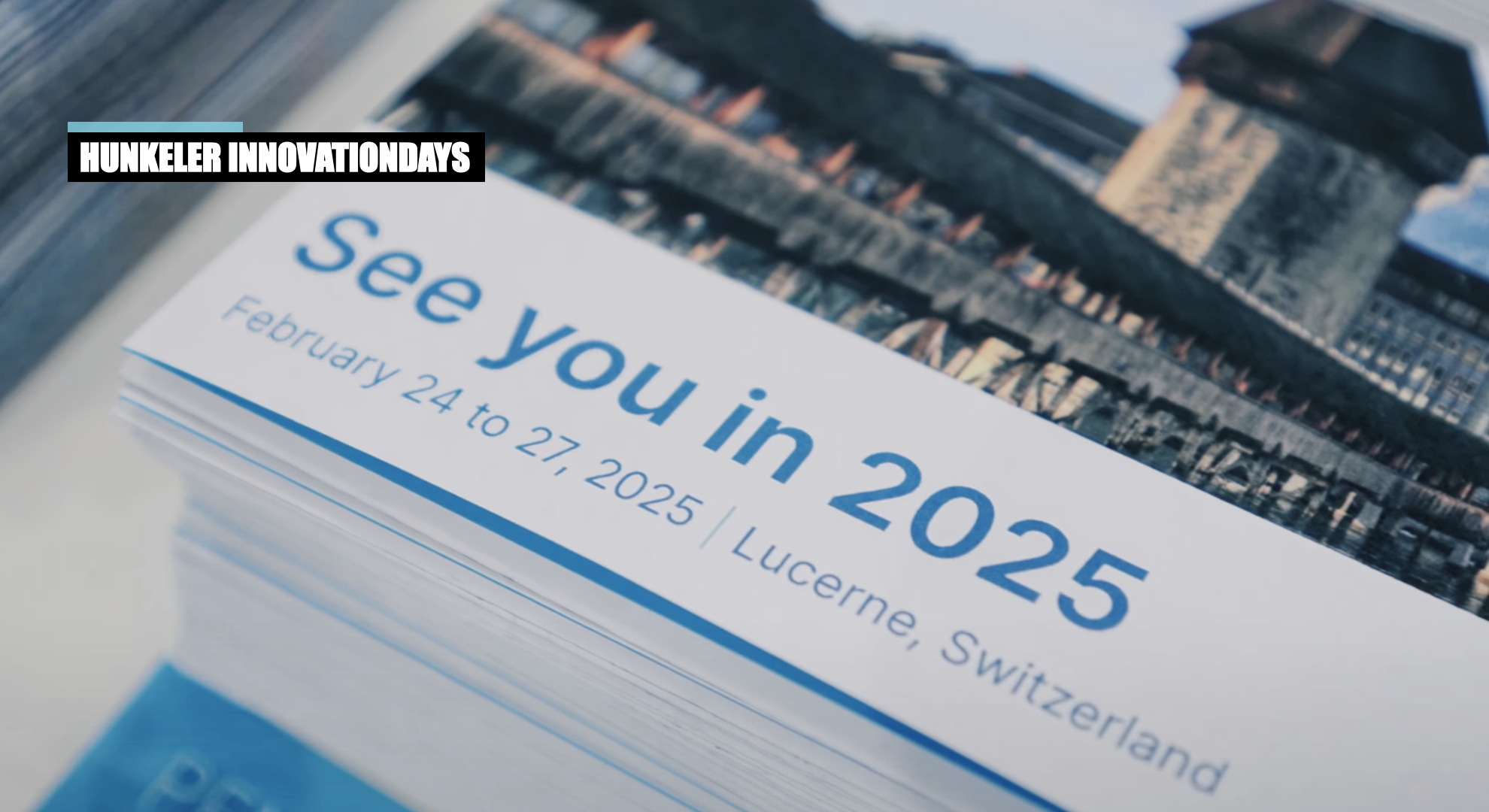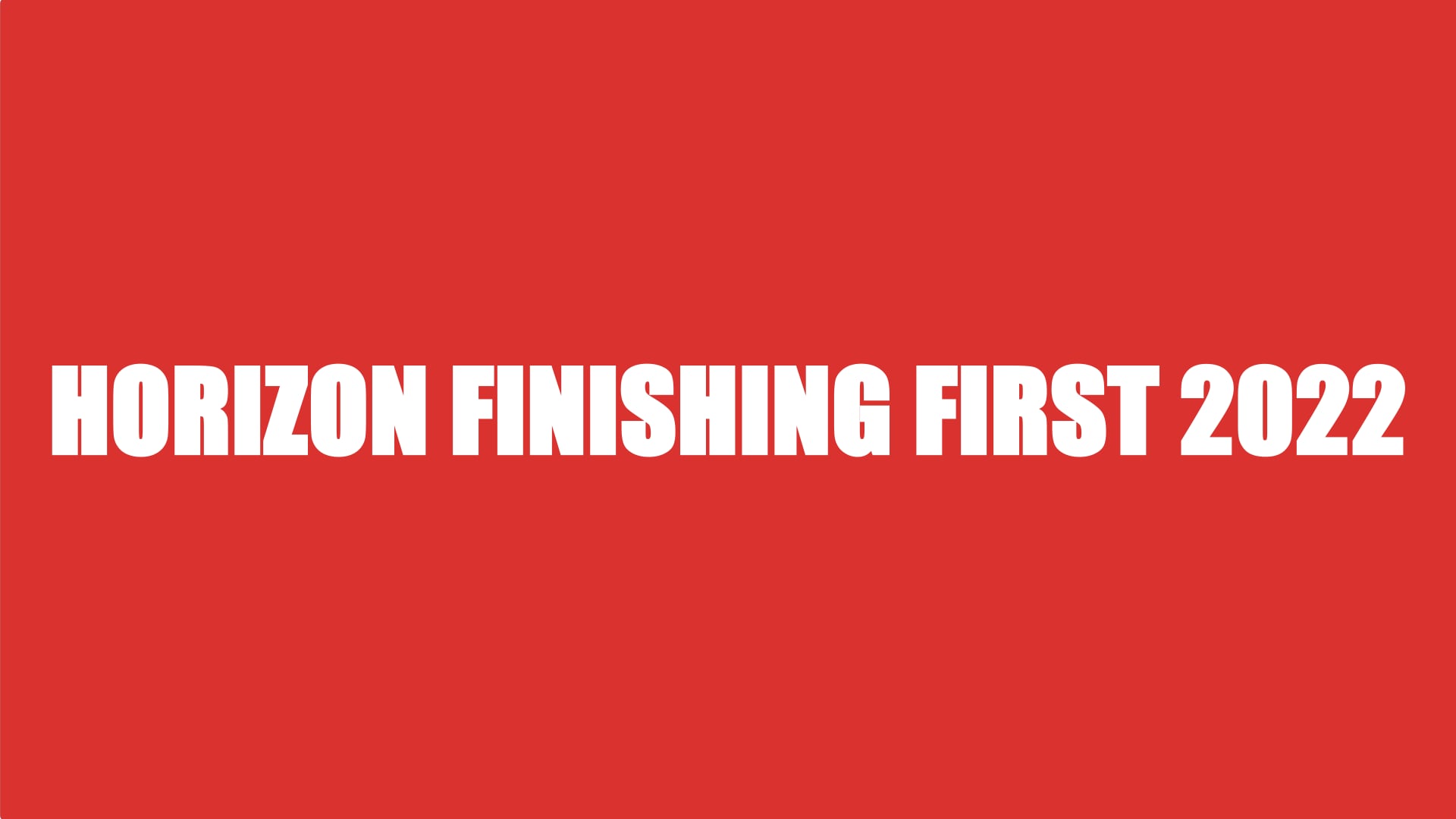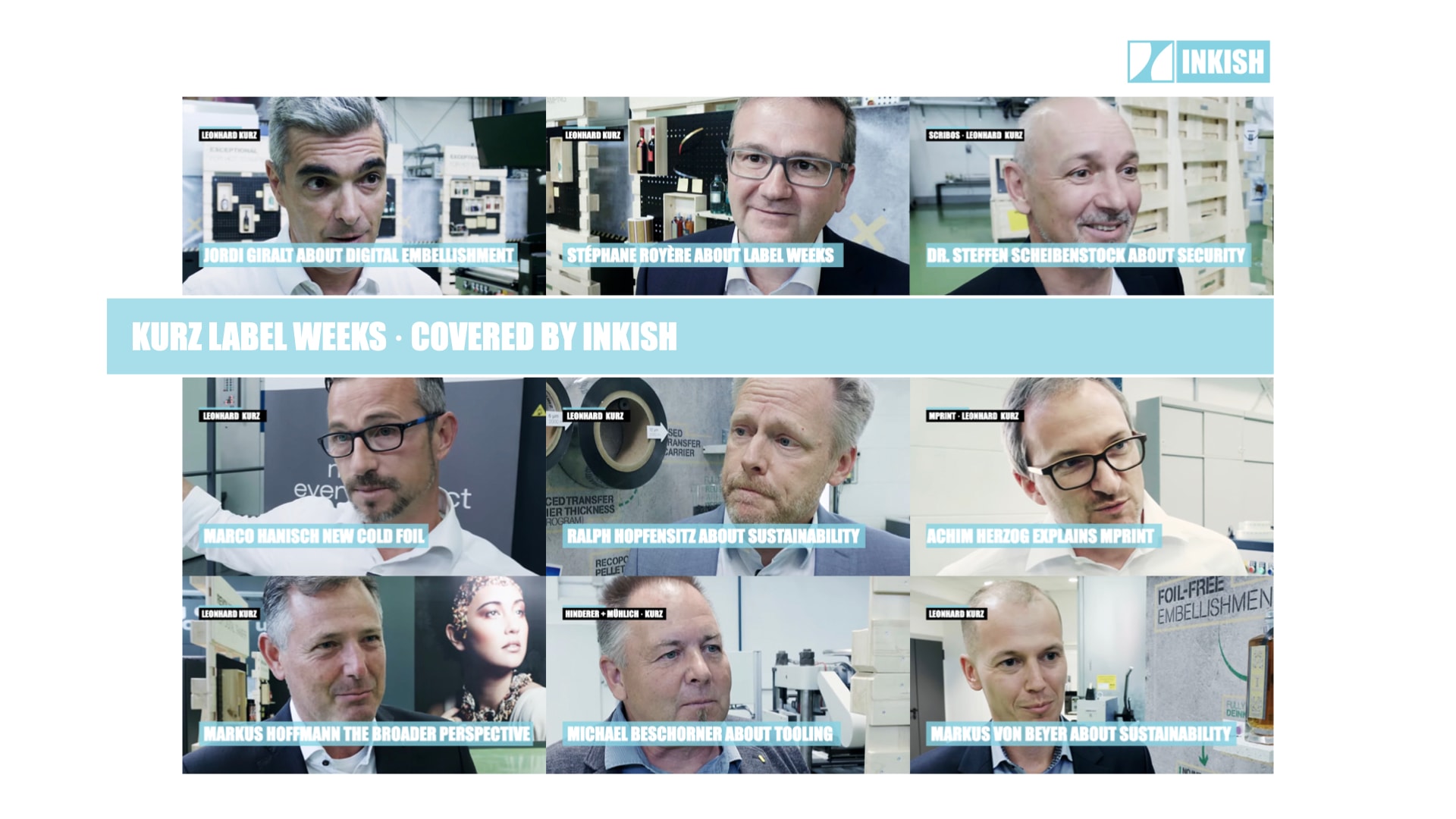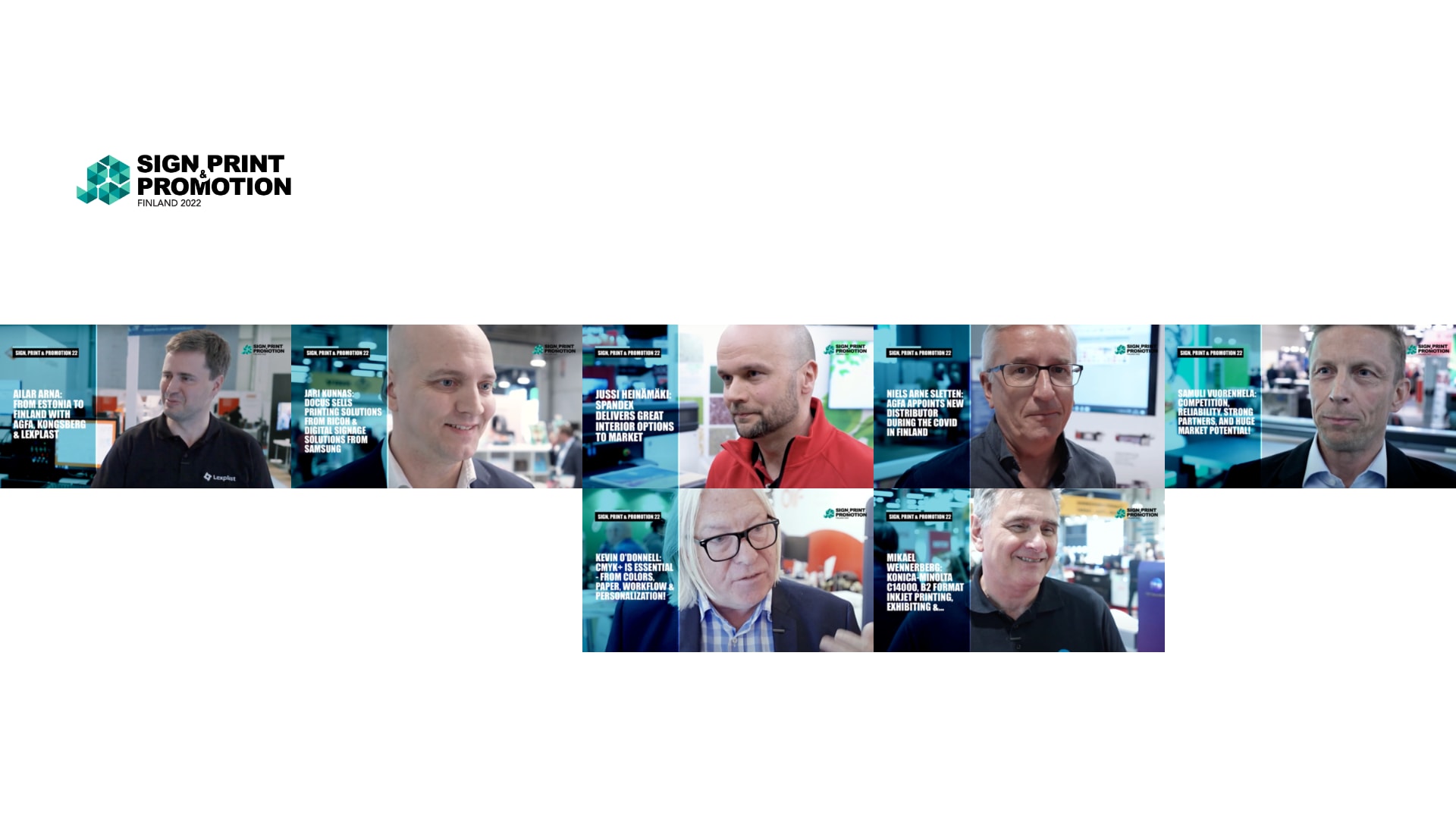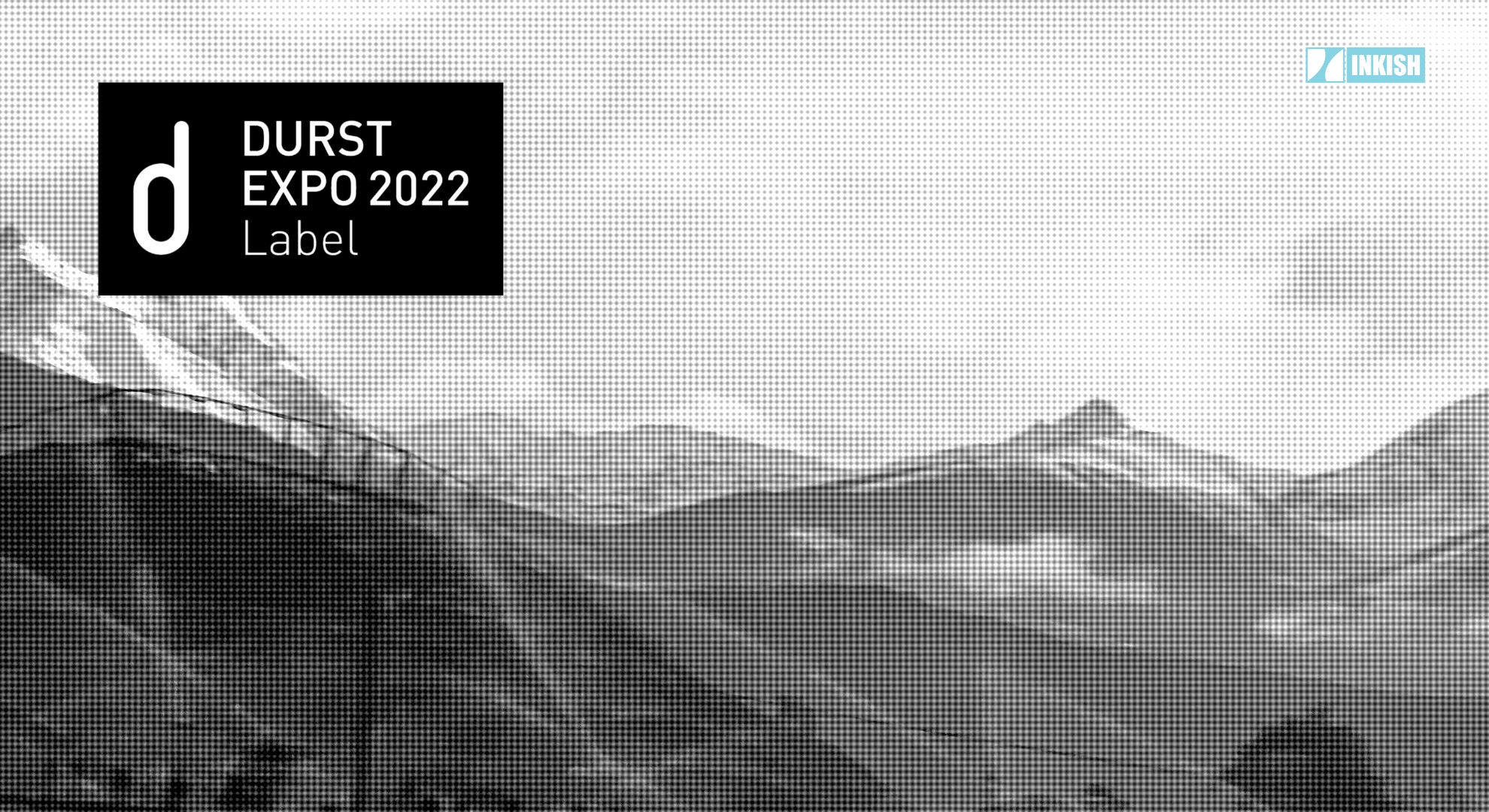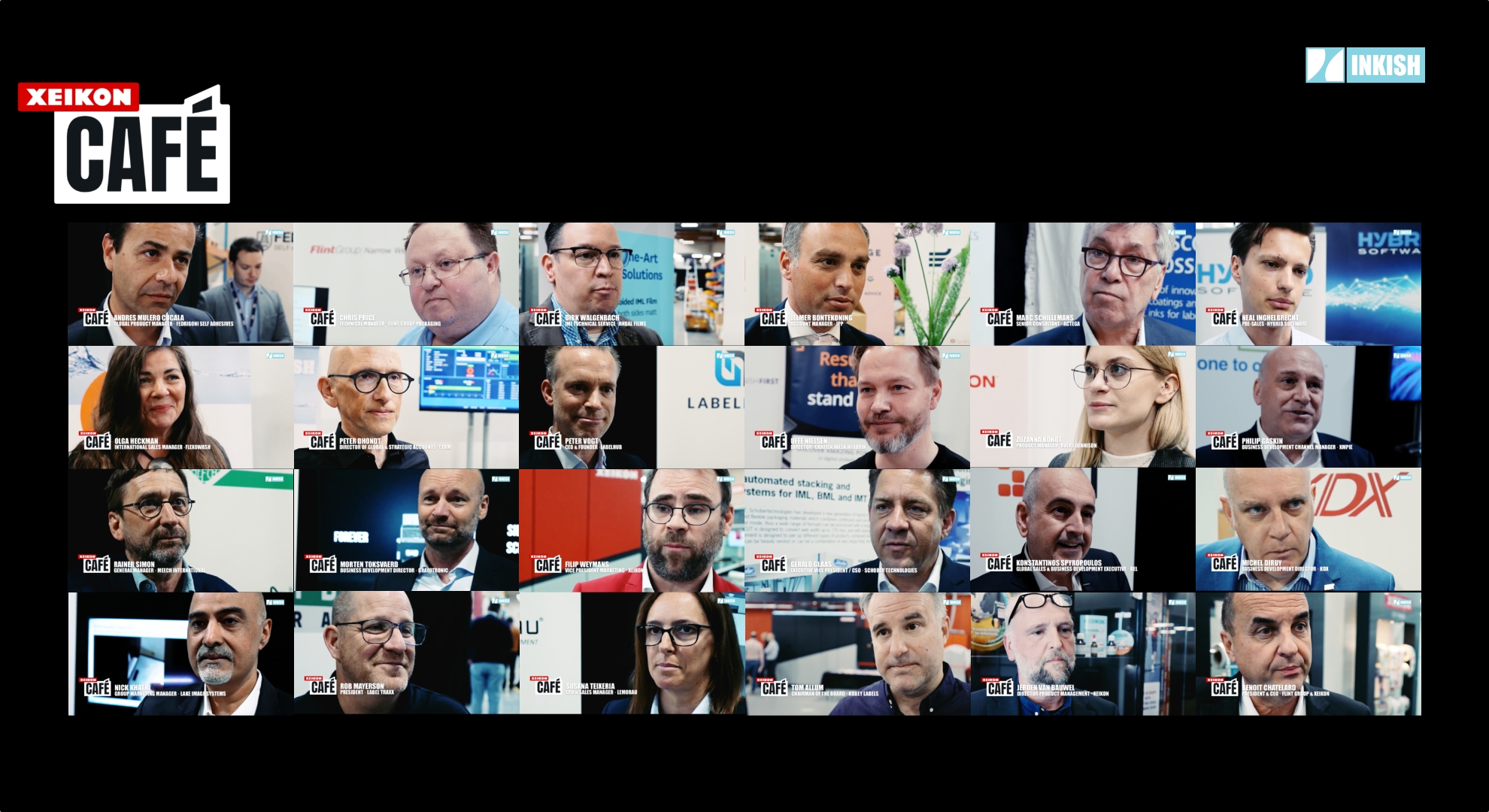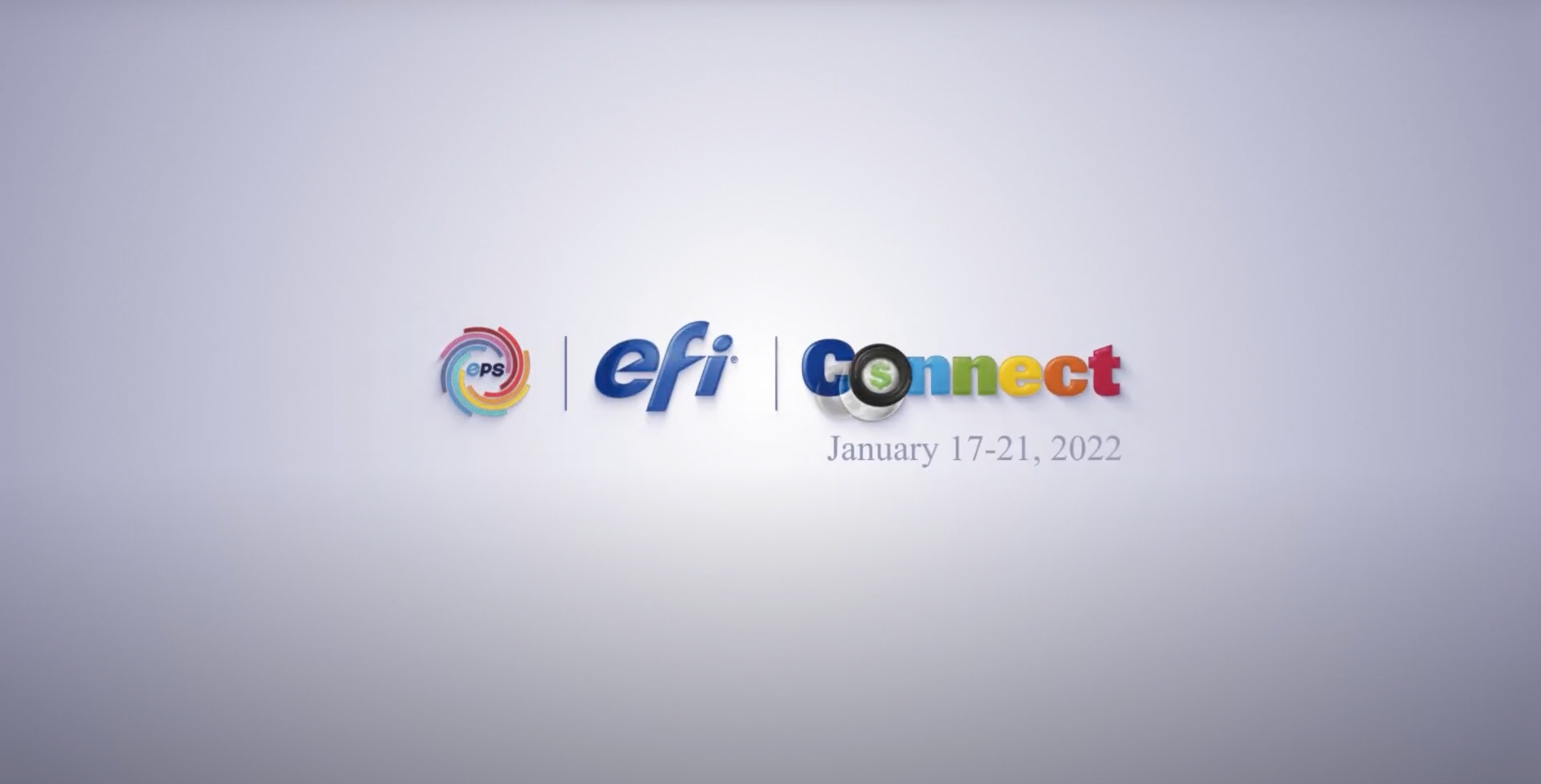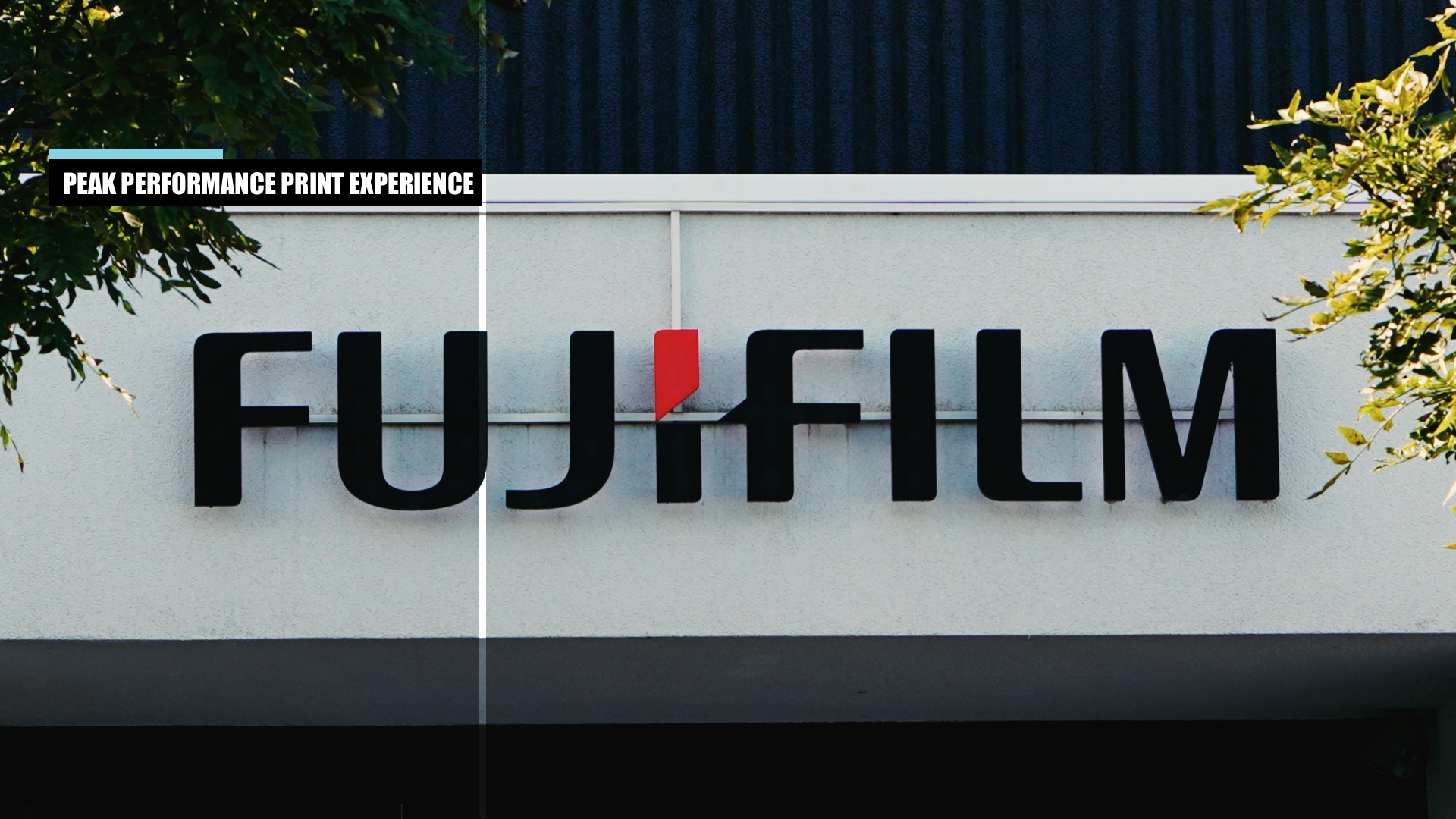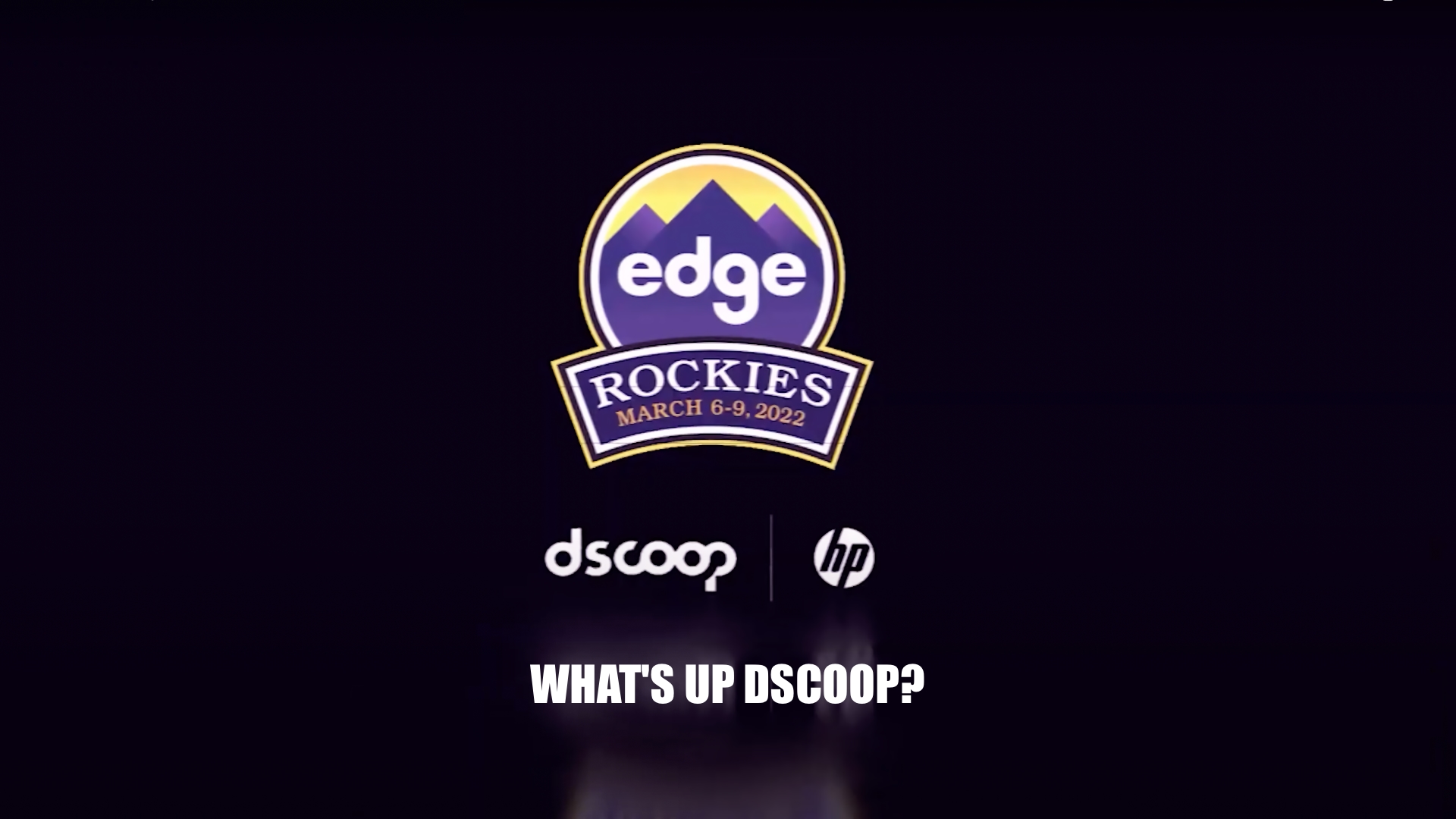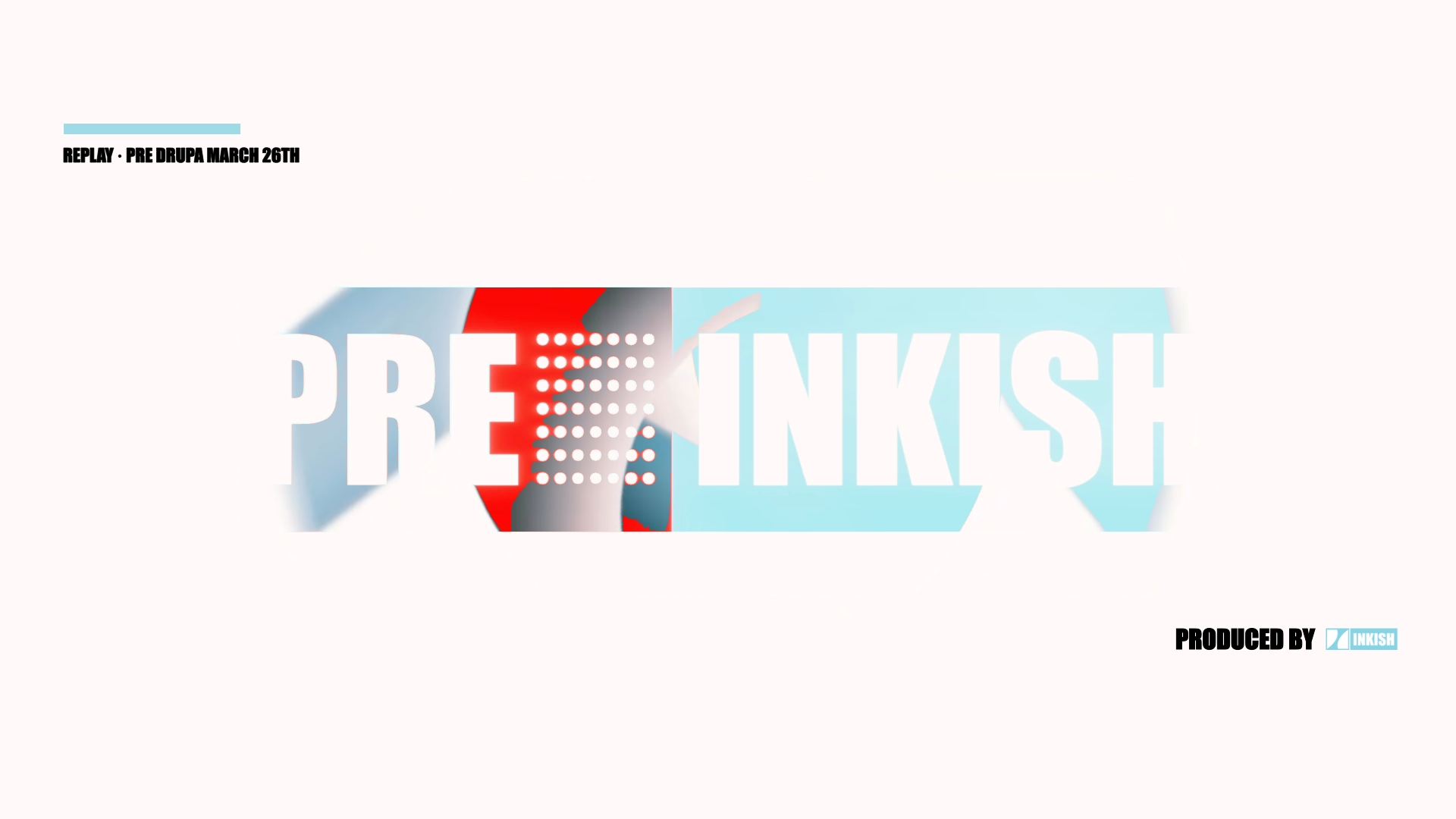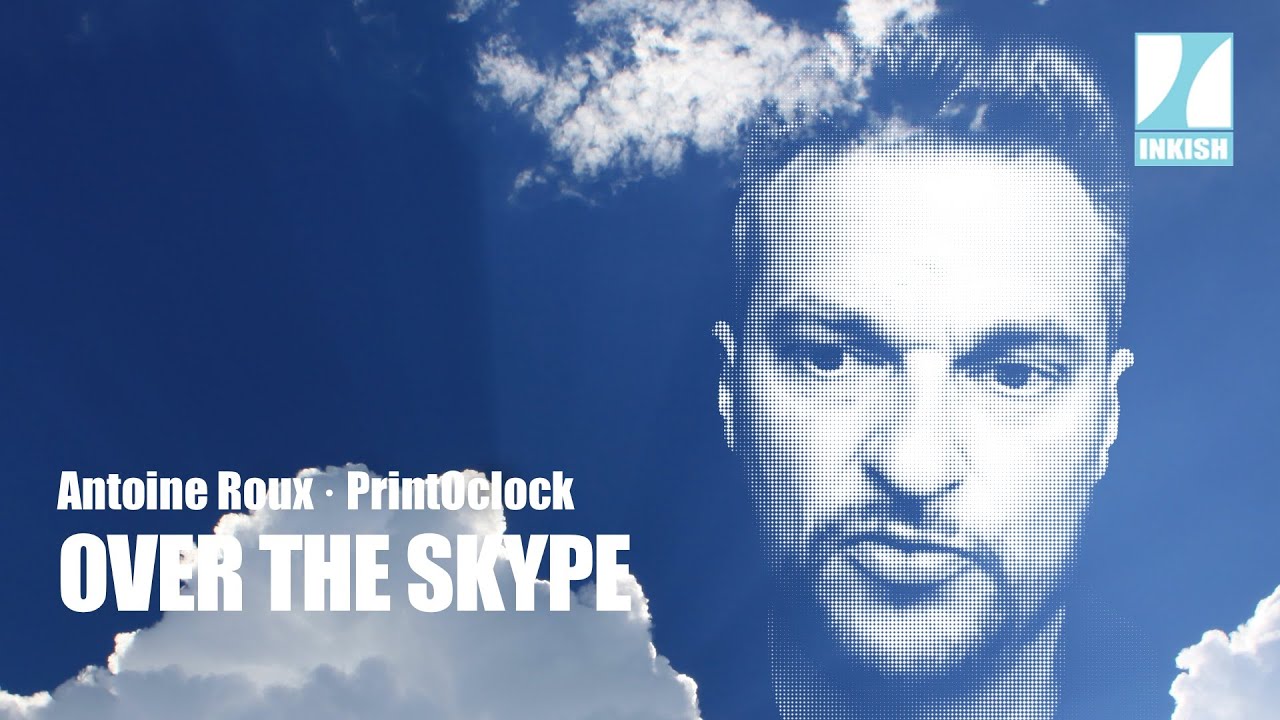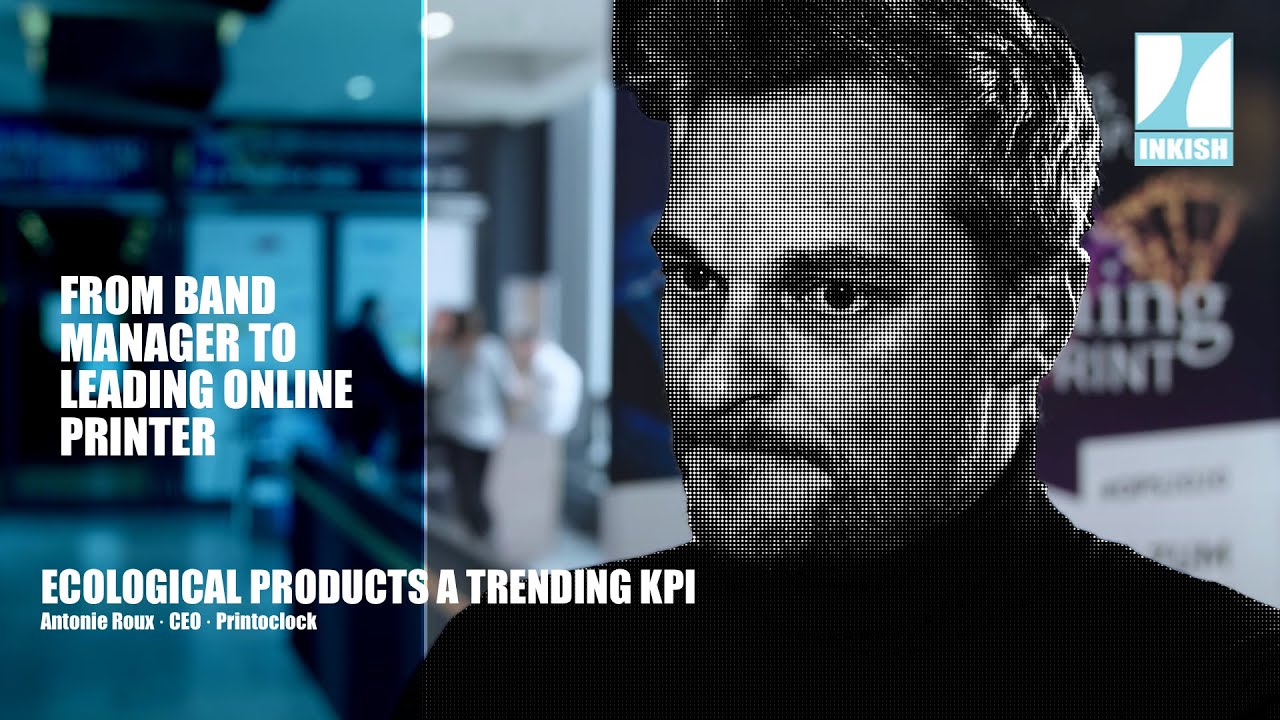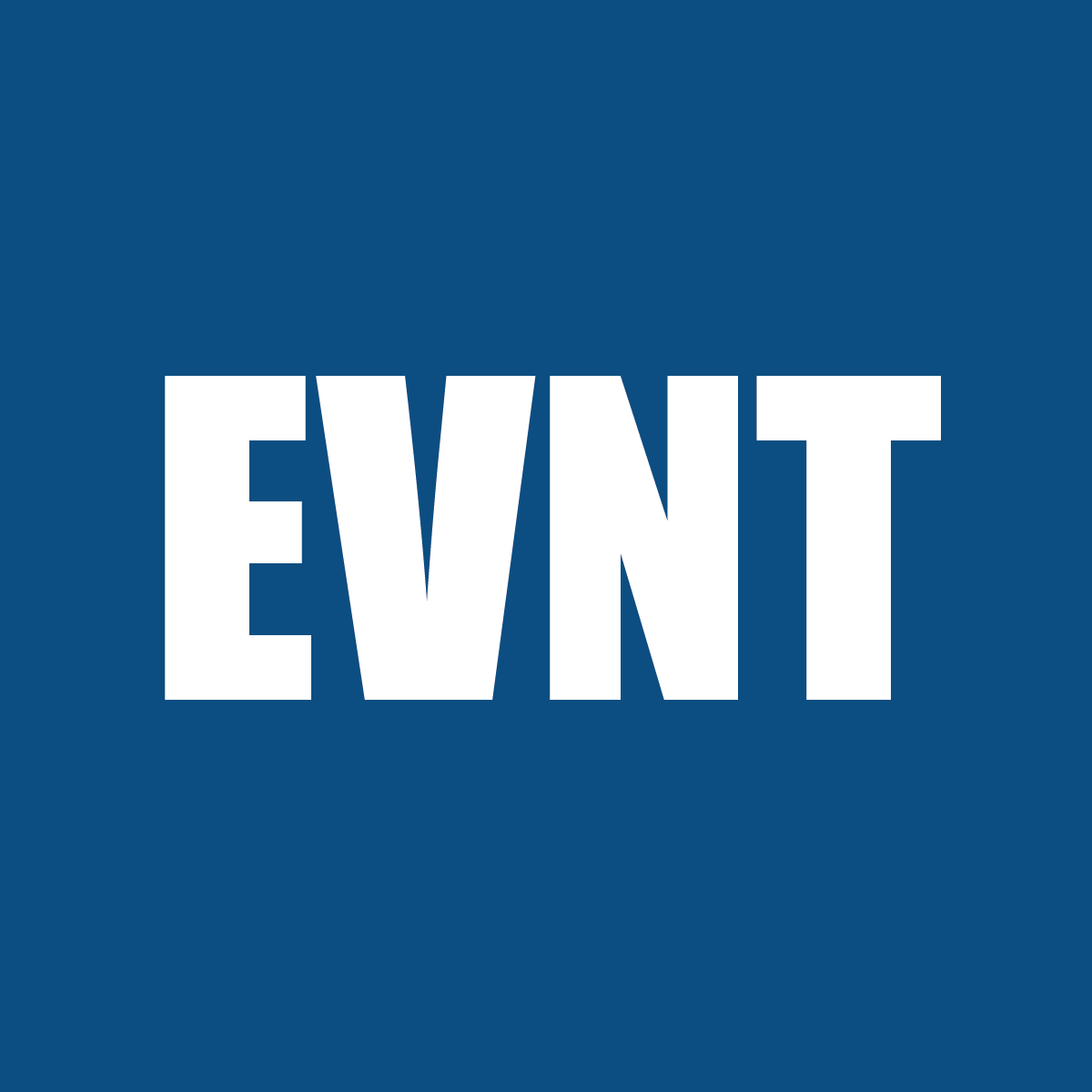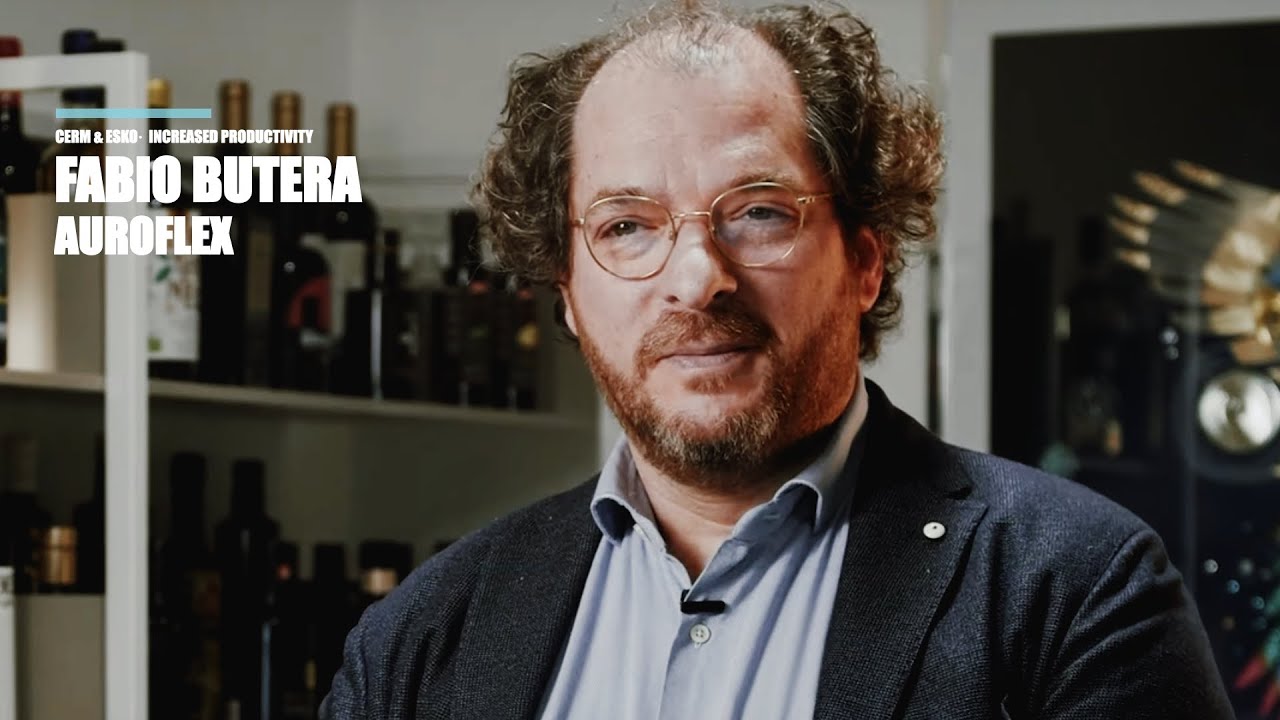Antoine Roux · Over The Skype · PrintOclock
During this “OVER THE SKYPE” interview, Antoine Roux, founder of PrintOClck, tells us how his printing online company succeeded in making masks during the confinement period, when stocks were running out all over France, how this health crisis impacted 1/ the behaviour of its customers, 2/ the working methods of its teams and 3/ the reactions of its suppliers and partners. It gives its opinion on the “MADE INFRANCE” put forward by the French authorities and public opinion following the repercussions that such a pandemic had on the French economy and on French printing comapnies in particular. He reveals the criteria for meeting the success of today and tomorrow that are essential in online printing, in Web-to-print, and moreover in this context of health and economic crises triggered by the covid-19.
Enjoy!
Durant cet entretien « OVER THE SKYPE », passionnant Antoine Roux, fondateur de PrintOClck, nous raconte comment PrintOClock a réussi le tour de force de fabriquer des masques pendant la période de confinement, alors que partout en France les stocks étaient en rupture, comment cette crise sanitaire a impacté 1/le comportement de ses clients, 2/les méthodes de travail de ses équipes et 3/ les réactions de ses fournisseurs et partenaires. Il donne son avis sur le « MADE INFRANCE » mise en avant par les autorités et l’opinion publique suite aux répercussions qu’une telle pandémie a eues sur l’économie et sur les imprimeries françaises en particulier. Il nous révèle les critères pour rencontrer le succès d’aujourd’hui et de demain indispensables dans l’imprimerie en ligne, dans le Web-to-print qui plus est dans ce contexte de crises sanitaire et économique déclenchées par le covid -19.
Profitez-en !
Yves d’Aviau de Ternay: Good afternoon Antoine Roux,
Antoine Roux: Good afternoon Yves
YAT: Thanks again for accepting my invitation, I know you already know INKISH and even if Morten Reitoft, who is the editor-in-chief of INKISH recently interviewed you at the last Online Print Symposium, could you tell us a few words about you and PrintOClock?
AR: Yes indeed, I am Antoine Roux, I created PrintOClock twelve years ago now. PrintOClock is an online printing company for professionals, therefore the B2B market. PrintOClock has 70 people, about half of them in production, because it is also a traditional commercial printer, very digitally oriented in terms of production, and then the other half of the workforce in the offices with tech, marketing and support functions. So 70 people, 12 and a half million in turnover last year, so we are 98% present on the French market. The French market represents 98% of our business.
YAT: Thank you very much Antoine. If I am also delighted today to interview you, because I was very impressed by your reactivity in offering a “Made in Toulouse” protective mask on the market, while stocks were running out everywhere. Could you tell us how you managed to achieve this feat?
AR: So we started quite late, i.e. when the confinement was launched, we focused on technical issues in particular and on rather strategic and structuring issues. For a month, we progressed at a good pace on these fundamental subjects, and then, uh, we kept ourselves regularly informed with our colleagues, people who have e-commerce in the textile industry for example, and at one point, we said to ourselves, we can’t just sit idly by during this period when we have machines, can’t we work together and create a mask, uh, so we swapped then PrintOClock, we decided to go for the children’s mask. It’s true that at the time, it was quite confusing, we didn’t know if children were vectors of the virus, how to protect them, etc. We didn’t know how to protect them. All that was blurred like the rest, we were all taken from courses, but then we started on this theme there and there, it was the discovery of a profession, we approached IFTH (Institut Français de Textile et de l’Habillement) to get advice, to source materials since we didn’t buy elastic bands for example. We didn’t buy any textile, other than t-shirts, or finished products, and so it was the journey of the fighter, but also a great adventure, to achieve our goal, to produce masks for children, and in parallel to that, we did a lot of trading on the surgical mask, or adult mask. . This made it possible to put the box back afloat and finally to re-instill a big dynamic in the company, that is to say that little by little people were going to partial unemployment and then when we started this new activity, it was quite exhilarating, in the sense that the employees were reactivated. Every day we reactivated one or two employees because we were quite successful in this market.
YAT: Bravo in any case, it was very impressive, a very good example of agility. Antoine, how does the current context impacted by the covid-19 pandemic modify 1/ the behaviour of your customers and resellers, but I would also like to know 2/ about your teams, their working methods and finally 3/ about your suppliers and partners?
AR: So on the customer side, we’ll say that some segments have resisted better than others, typically, paper resists not too badly, but what really stands out is the large format, the large digital format, because for the trade for example, we make panels, banners, and others to announce their reopening. We also have a lot of products, such as office protection, hygienic devices, so that too is in the large digital format department, because it’s cut out of the waves, cut materials, and then there’s the advertising object part, which is a smaller segment for us, but which is less resistant for the moment, because it’s true, these are, I think, considered more incidental expenses. So that’s what our clients consume. We feel that they are necessarily prudent, like everyone else, I think, in this period, is quite observant, but it started up again in June.
Now in terms of working methods, like all companies, we discovered teleworking, and … then we were used to working with a few consultants, freelancers, but not of this proportion, of course, because the whole company except the print shop went into teleworking mode, it worked very well, I think during the big part of the confinement, I think from a moment on, there was also a weariness, people, situations were diverse, personal situations, but quite a few employees were happy to regain a social life, through their job, but for all that, I think that it will have changed our vision of telework in the long term, where like any company manager, we can have reticence, doubts about its implementation, we saw that it could work well, when it was well defined.
YAT: Tomorrow then, you will continue to use telework in your organisation.
AR: Yes, for now, today, it is a little more mixed because we have some staff, who are a little more sensitive, or in any case who could be more worried that we have maintained teleworking, therefore in technical fields, in industrial computing. For example, so I think that this will indeed open up, it will open up this area, but that does not mean that it will become generalised because I think, it is also … typically, it depends on the services, we will say that the technology.., but I think there is a need for team meetings during the week, to discuss issues, to save time and also to stimulate each other, on marketing for example, we have seen that it was more difficult, because there is still teamwork, with a product manager, graphic designers, someone who does acquisitions, and if these people don’t communicate around a table, the subjects move less quickly. So, I think it’s going to be a little bit case by case, in any case, it opened the way, and I think there was a psychological trigger in many bosses, because I think we all know a lot of our friends, our entourage, who had to work a lot, maybe 130%, compared to their usual activity. I think we’ve all heard that, neighbours, etc. who were working a lot, and so I think psychologically there’s something that happened. There will be a before and an after, it’s obvious on the telework part, and I think that for us, it doesn’t mean that it will become generalised, in any case it will be much more open from this point of view.
YAT: And with your partners and suppliers, you have also seen an approach to adapt to this pandemic.
AR: Yeah, a variety of approaches, many of our suppliers have gone for covid products more or less quickly. Indeed, people who sell us raw materials, banners, or stand structures, etc., have started to use covid products. These are companies that were already importing, because some materials are imported, and so these people naturally turned to these markets, people who do sublimation, started to develop a range of masks, to produce a range of masks, although we feel that the return to reality is quite complicated at the moment, the purchase volumes of web-to-print clients, like us, have dropped. So I think they are quite cautious, and they are affected by this crisis.
YAT: And precisely in this context, there is a lot of talk about “MADE IN France” which is put forward by the authorities, by public opinion, and precisely when we prepared our telephone interview together, you told me about your conviction to favour local production, so could you give me your vision of “MADE IN France”, what do you think… are you convinced? Is this pandemic going to encourage it?
AR: I think this pandemic will favor it. From a psychological point of view, I think that the consumer is a little more educated, that there is a slightly patriotic feeling, which will be a little awakened at this level, that there is a kind of solidarity that is also a little national, so that the weakened economic fabric can be more easily remodelled… now we have seen it with the mask crisis, which was very symptomatic of the French deindustrialization, we were also very much affected because we are no longer a land of production. We must therefore remain realistic and say that we are very poor in terms of industry in France today, apart from a few sectors in which we have some industrial jewels, but we no longer have a truly industrial land. I think that governments will have to vote for measures to reindustrialize, because our public health is also at stake, as we have seen, so that we can reproduce. Frankly, the example of the masks was really symptomatic, because I did a lot of research on this subject during the confinement period, and it is true that there were a lot of very fine local initiatives with companies producing, etc., but the bulk of the volumes, as you have seen, came from abroad. They produced in volume, of course, Asia, but Portugal, which has a stronger textile culture, etc., was also a major producer. It is true that it is difficult to produce in France today, so the “MADE IN FRANCE”, there will be an affected side, if you like, and the consumer will be sensitive to that, but there must be an answer behind it, if we sell a product twice as expensive, and it is not as good, it will be a sword cutting through water.. So everything will depend, I think, on the accompanying measures. It is clear that printers are not rolling in money, that manufacturers, whatever their trade, do not have very brilliant profit and loss accounts, so everything will depend on what will be done from a political point of view to ensure that this continues.
YAT: So that this can be a reality… thank you Antoine. I would like to pick up on what, in your opinion, are the criteria for success today and tomorrow that are essential for success in online printing, in Web-to-print? Are they and will they be different in the last five and three years?
For me the number one factor will be technology, to some extent it already was. We’ve seen the success of groups that have invested heavily in technology and marketing. Multinationals if you think of the leaders or very large SMEs if you think of some European players, so I think technology is the central point to master, to try to take market share. Last year, we developed and redeveloped our entire technical infrastructure. Last year, we opened our new 2019 site with new technologies and an open architecture to interface with third-party systems. I think that’s pretty key for web-to-print players, but it’s a bit of a truism since everyone understands it. We have set up a good architecture, an API, which allows third parties, typically a printer or a com agency, who are already doing print, to expand their catalogue easily and to place orders with us in a transparent way, while having the freedom to choose which order they send to us, we are not in a closed system, we let the client do his own thing, and decide which product he’s going to entrust us with, so for me, even today than yesterday, tech will be a central element, and, of course, marketing, since we’re in a world, where it’s going very fast, and therefore this marketing mix-tech… There’s less of a difference than a few years ago, digital has taken the lead and caught up in terms of quality, etc… Compared to offset for paper, so I would like to say that the machine park is more homogeneous, …
YAT : … the differentiation will be made mainly through this technology, these API connections
AR: And the service and how to address the user.
YAT: I was therefore very interested in your partnership with the online printing software editor Aleyant? You can tell me a little more about it…
Are: Aleyant, it’s a solution, we were the first French customer from memory to use one of their bricks, a personalisation engine, personalisation of flyers, of printed products, above this personalisation engine, their primary business is to sell web-to-print systems, essentially to printers who want to go on the web. Given that we had our API, which was well designed and up-to-date, we proposed to Aleyant to interface with this API, so that in Pressero, which is Aleyant’s Web-to-print tool, a printer can very easily expand its catalogue without having to deal with the problems of product creation, product sheets and pricing. All he has to do is define his margin policy, a percentage, and the orders go into his back office, and he determines whether he sends them to us, or whether he keeps them for home or for his neighbouring supplier, so that for us is the first element of interconnection with a system that we think is relevant, and it’s the start of our strategy, at least it’s the first brick in our strategy for developing this PrintOClock API.
YAT: It’s very interesting and I think it’s very promising. Thank you very much Antoine Roux for this first interview for InKISH France, which will be broadcast on the INKISH platform and Youtube, and also subtitled in English for printers and other companies in the graphic industries in other countries and other continents. Thanks again for this exciting interview… Antoine…
AR: Great, thank you very much, and it’s true that I’m inviting you, French printers, I discovered INKISH, so very recently, the reports are very high quality, you can see them on their Youtube channel and what I hadn’t measured is the resonance that it can have even at a global level, there are a lot of views, so it’s really a great media for printing companies, for our sector, so it’s great that INKISH is coming to France.
YAT : Thank you very much and see you soon Antoine.
AR: Goodbye Yves


